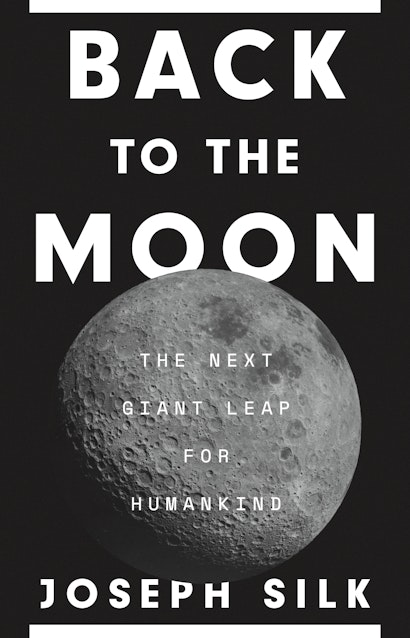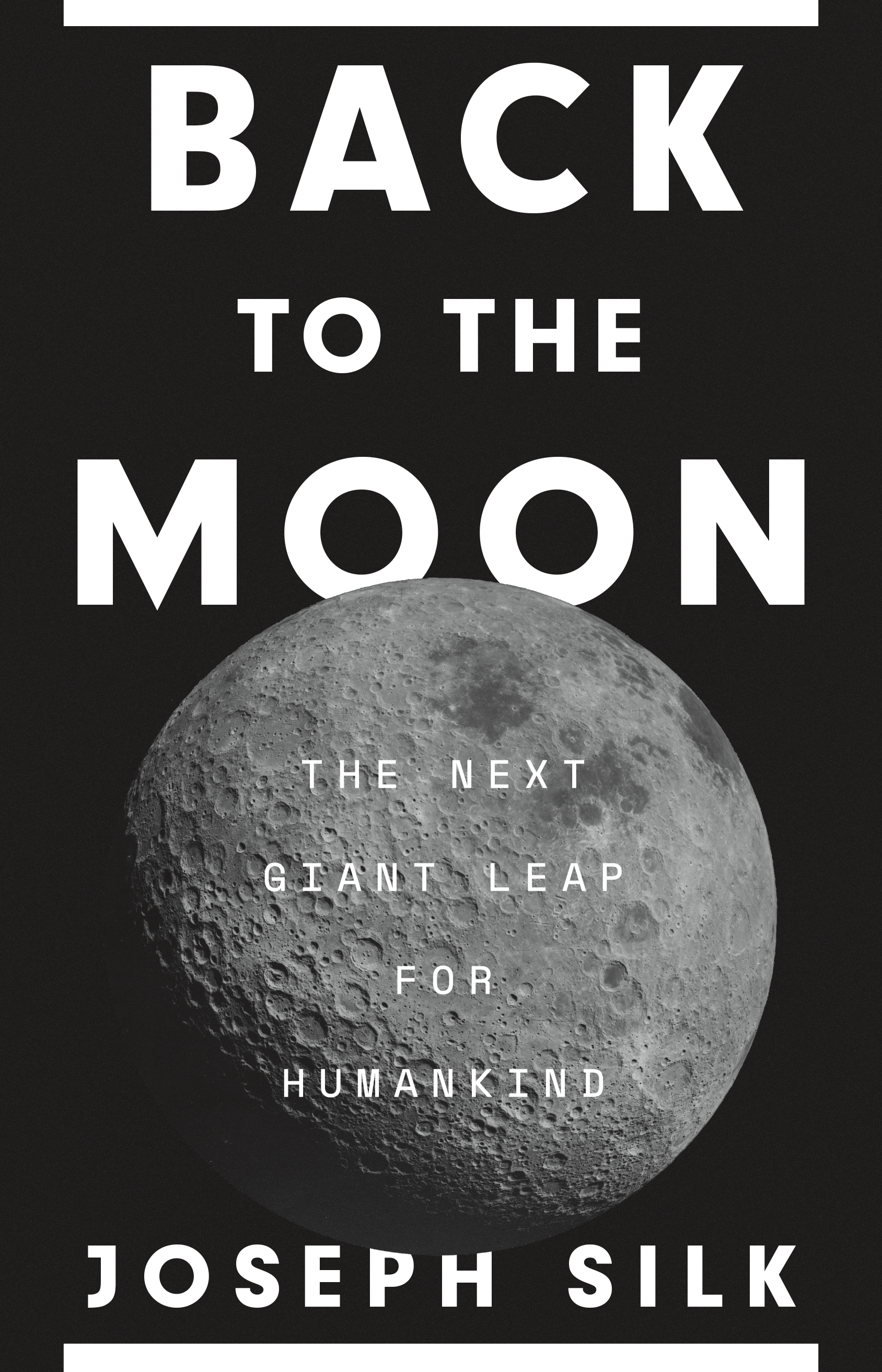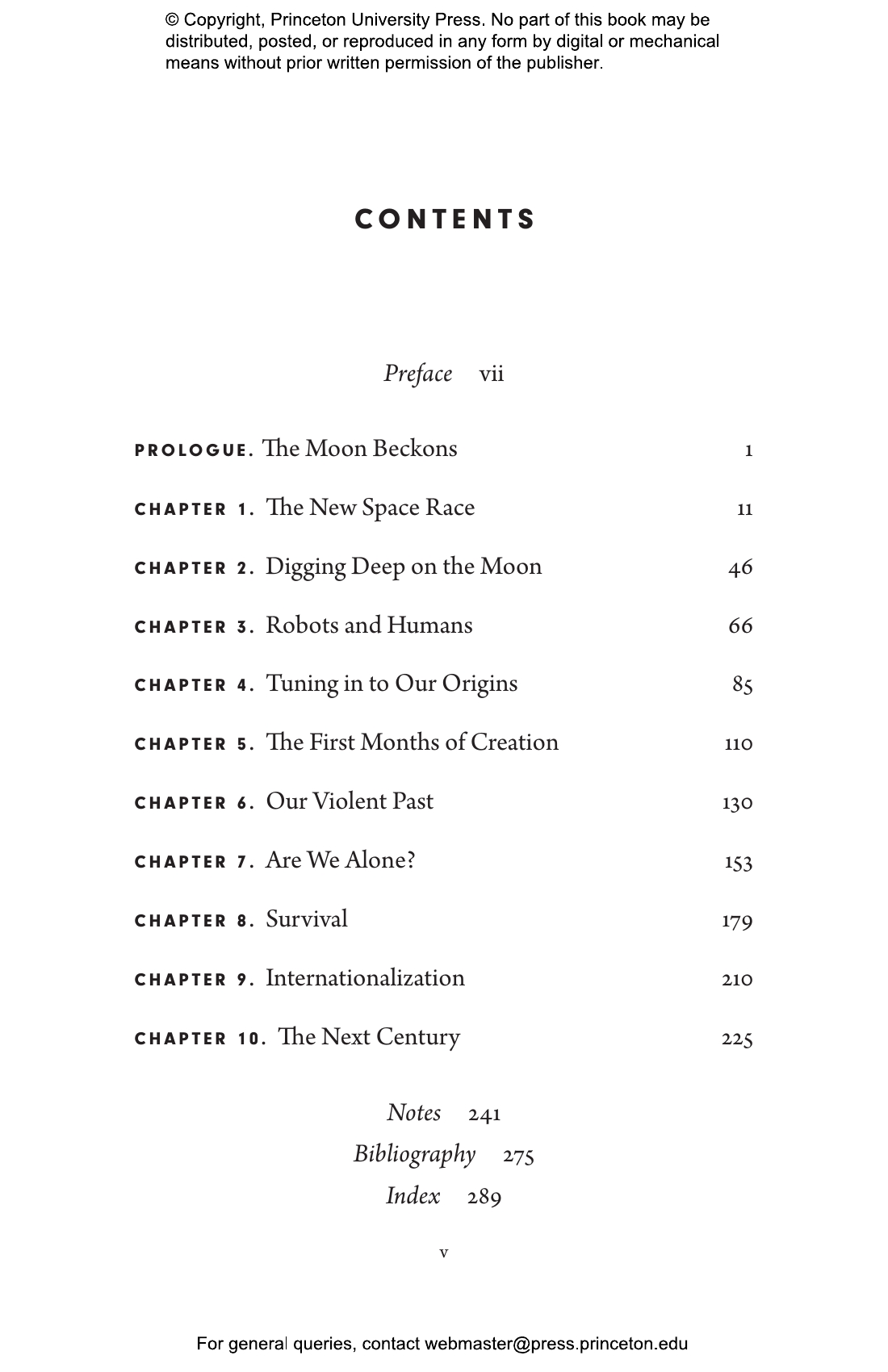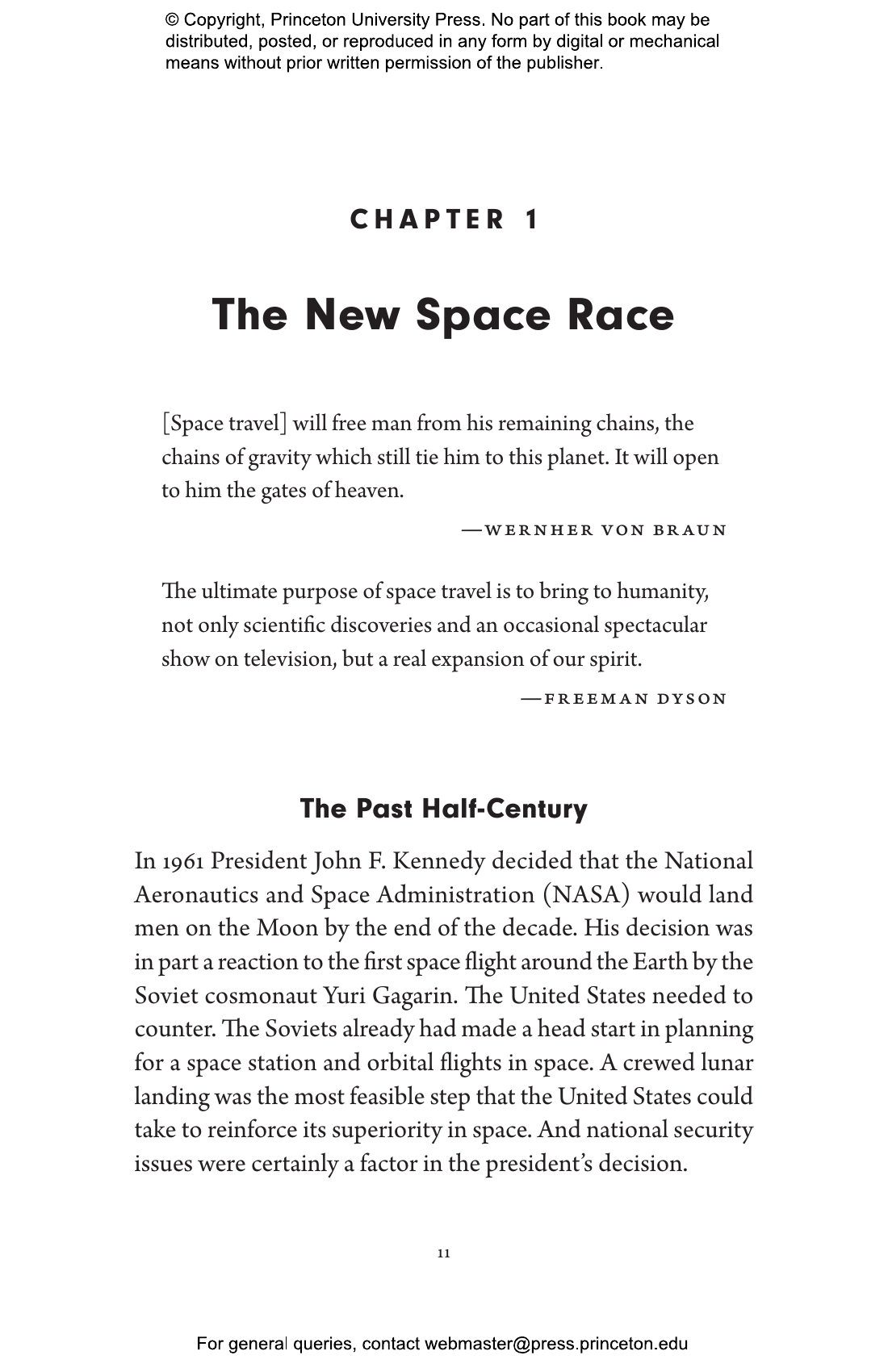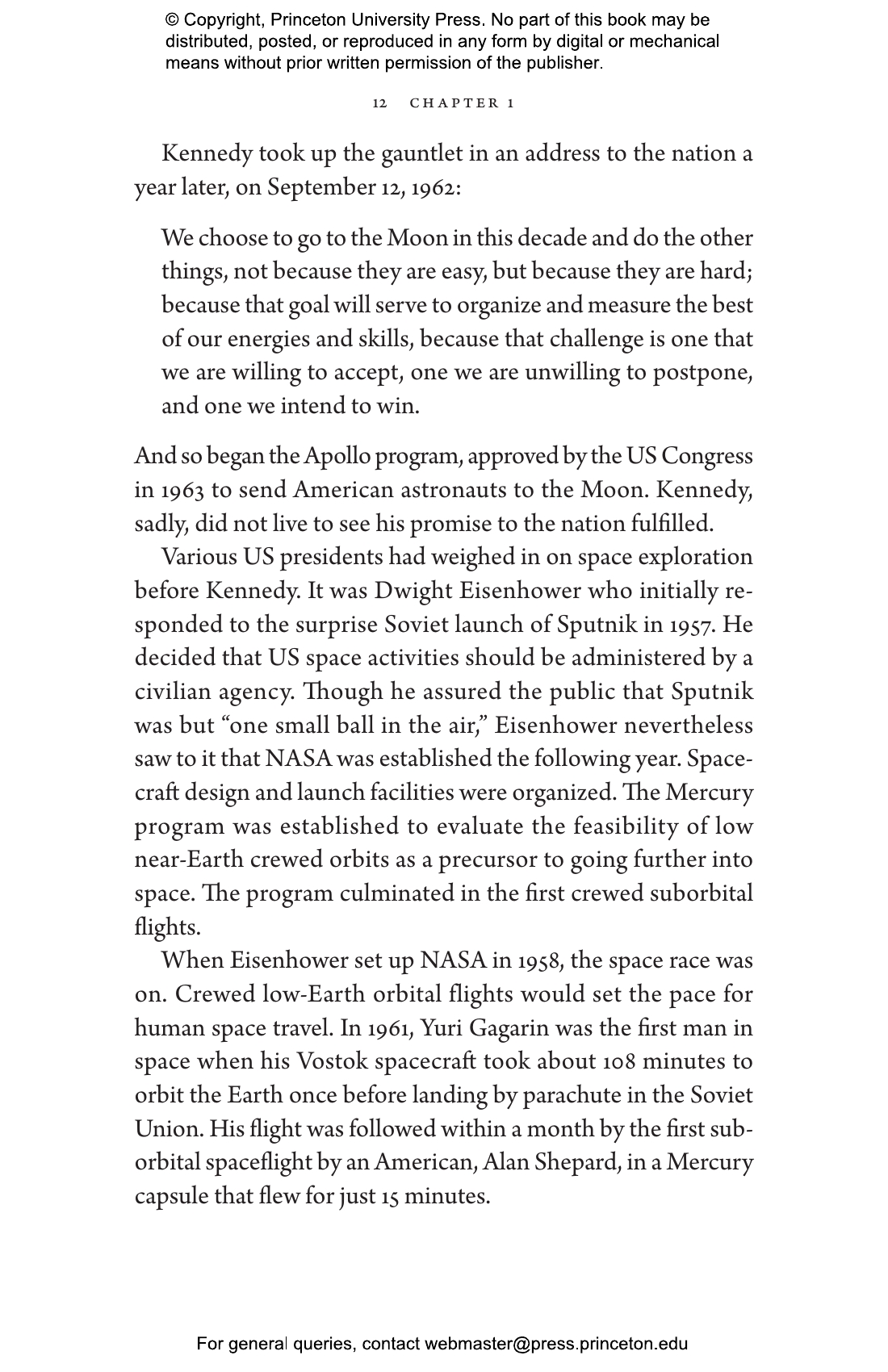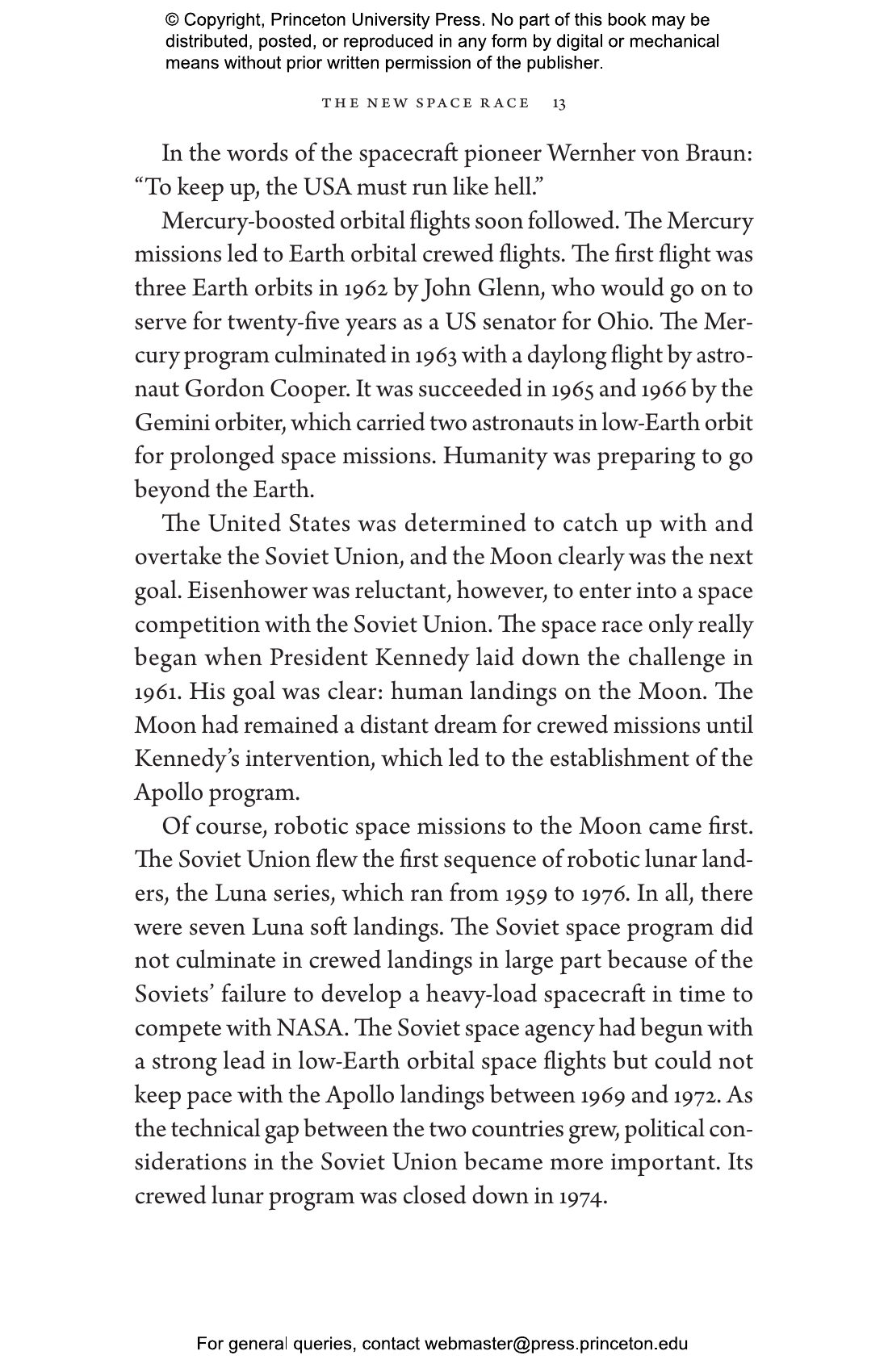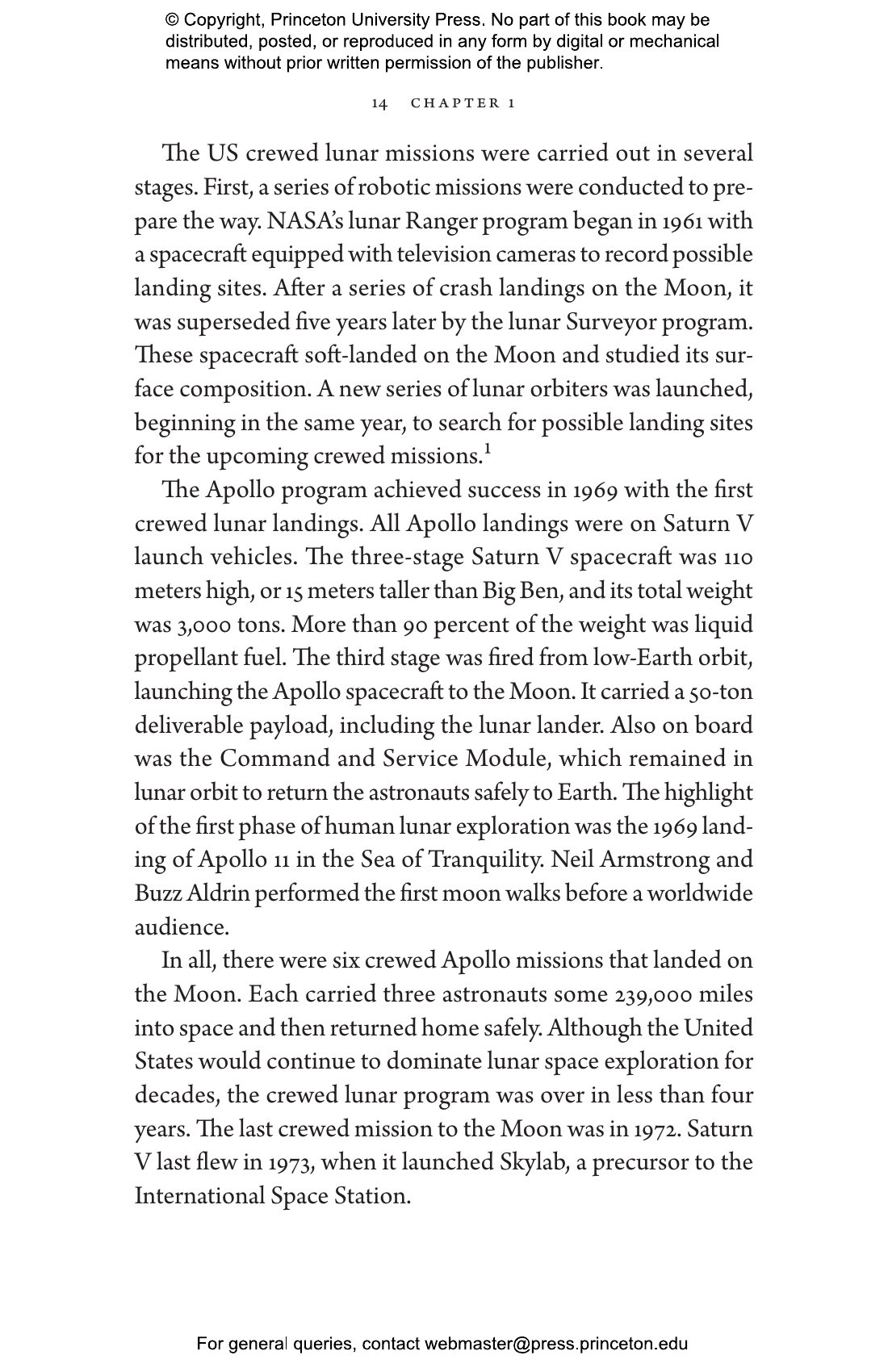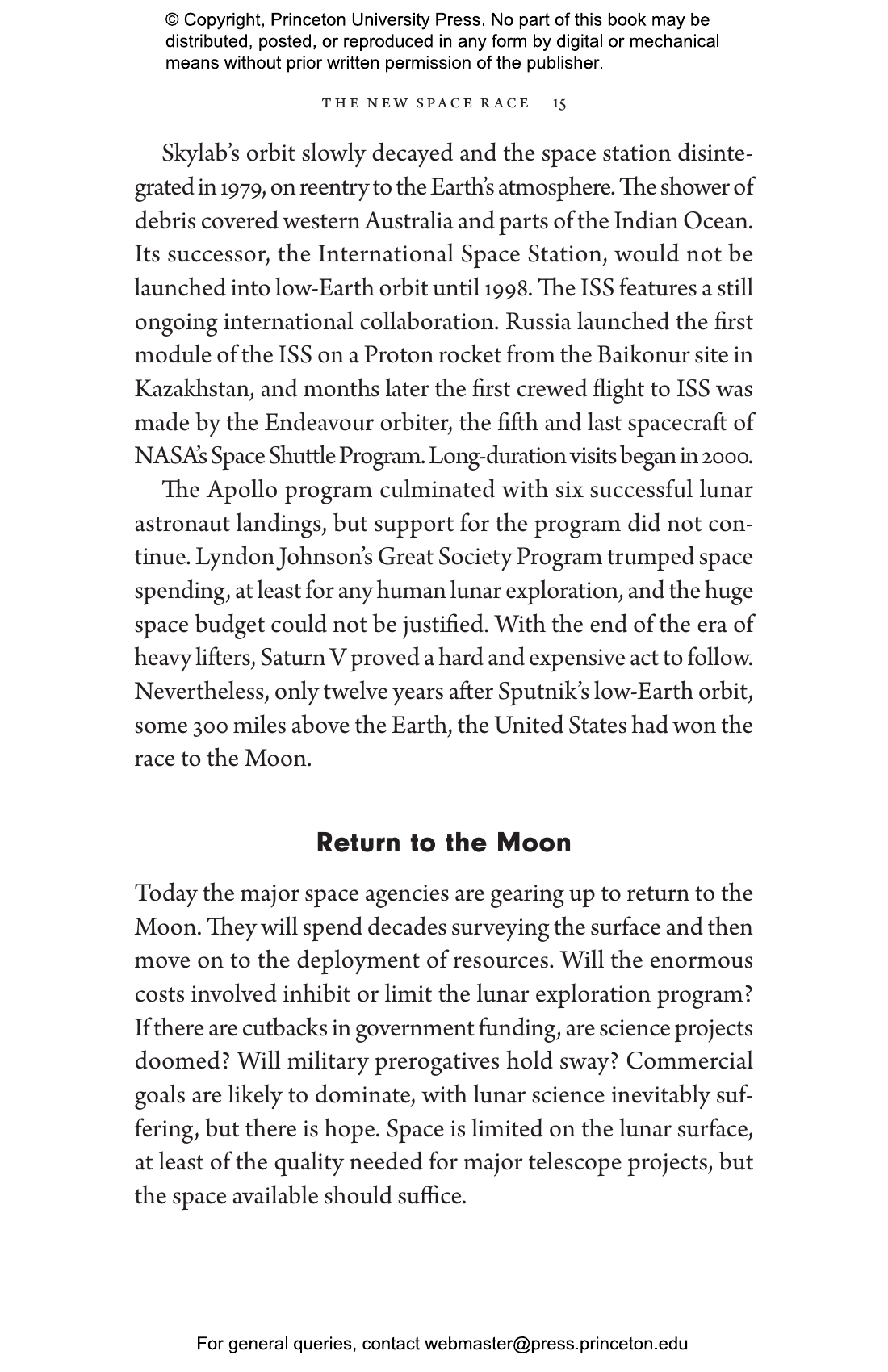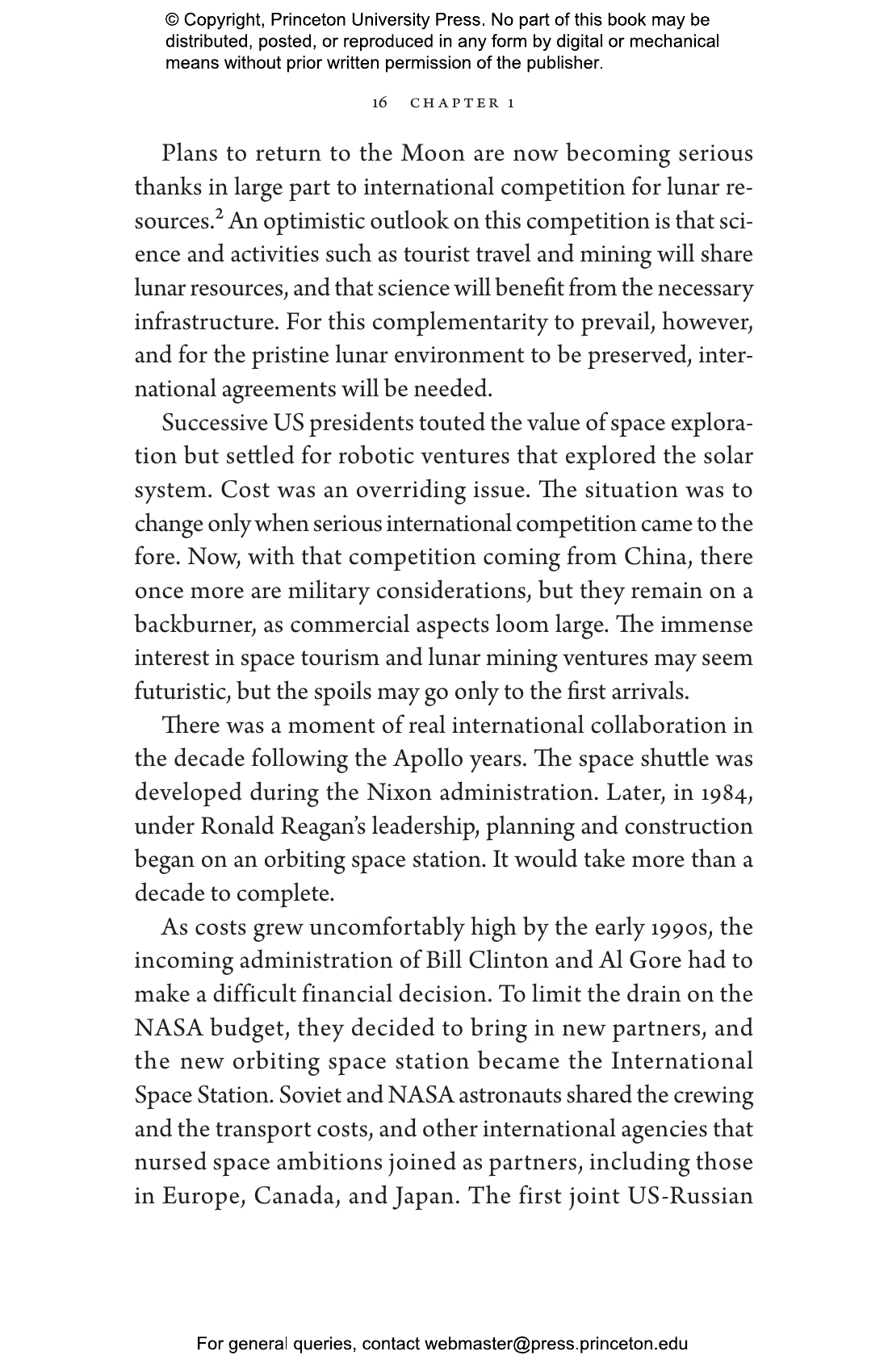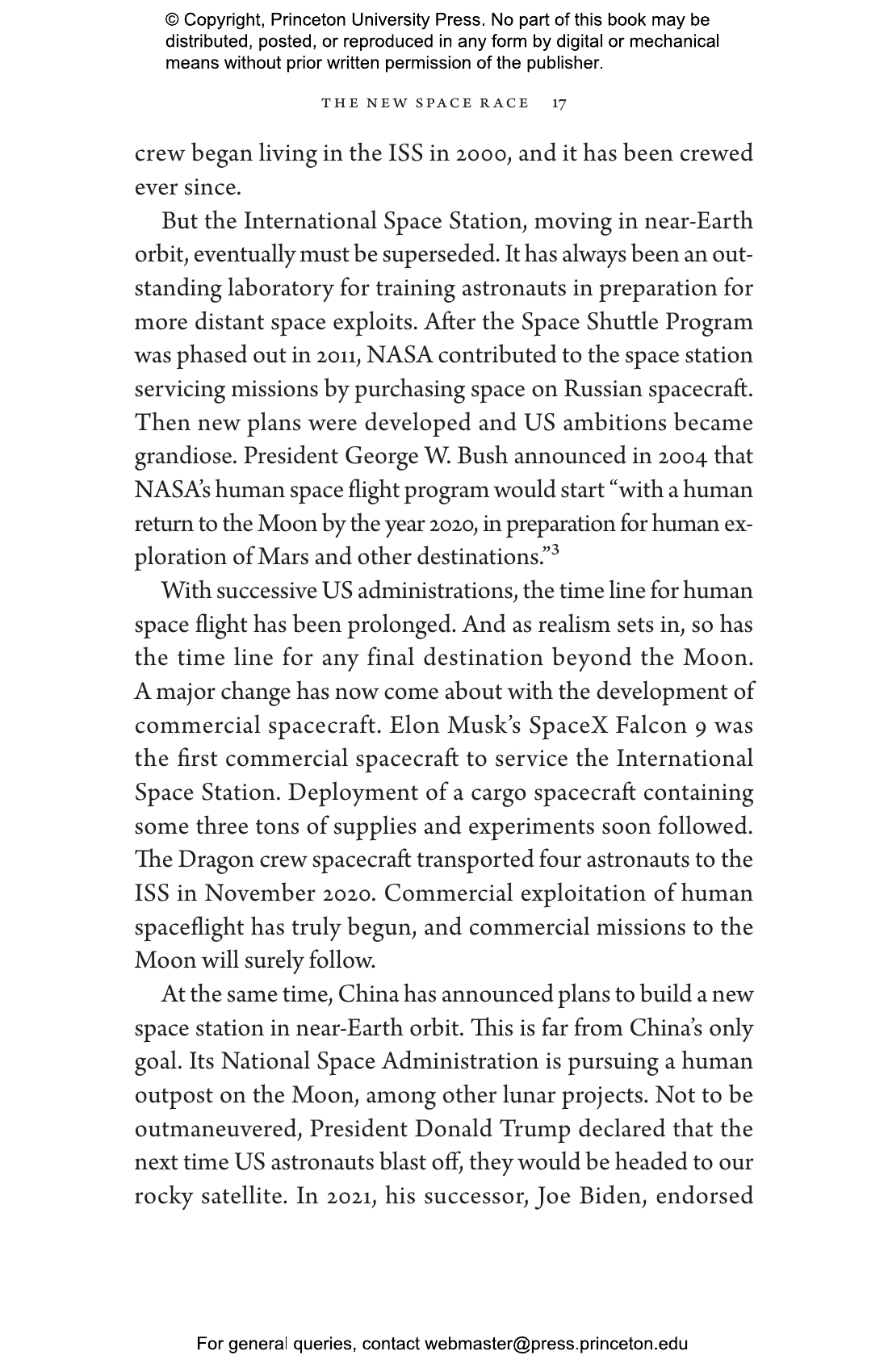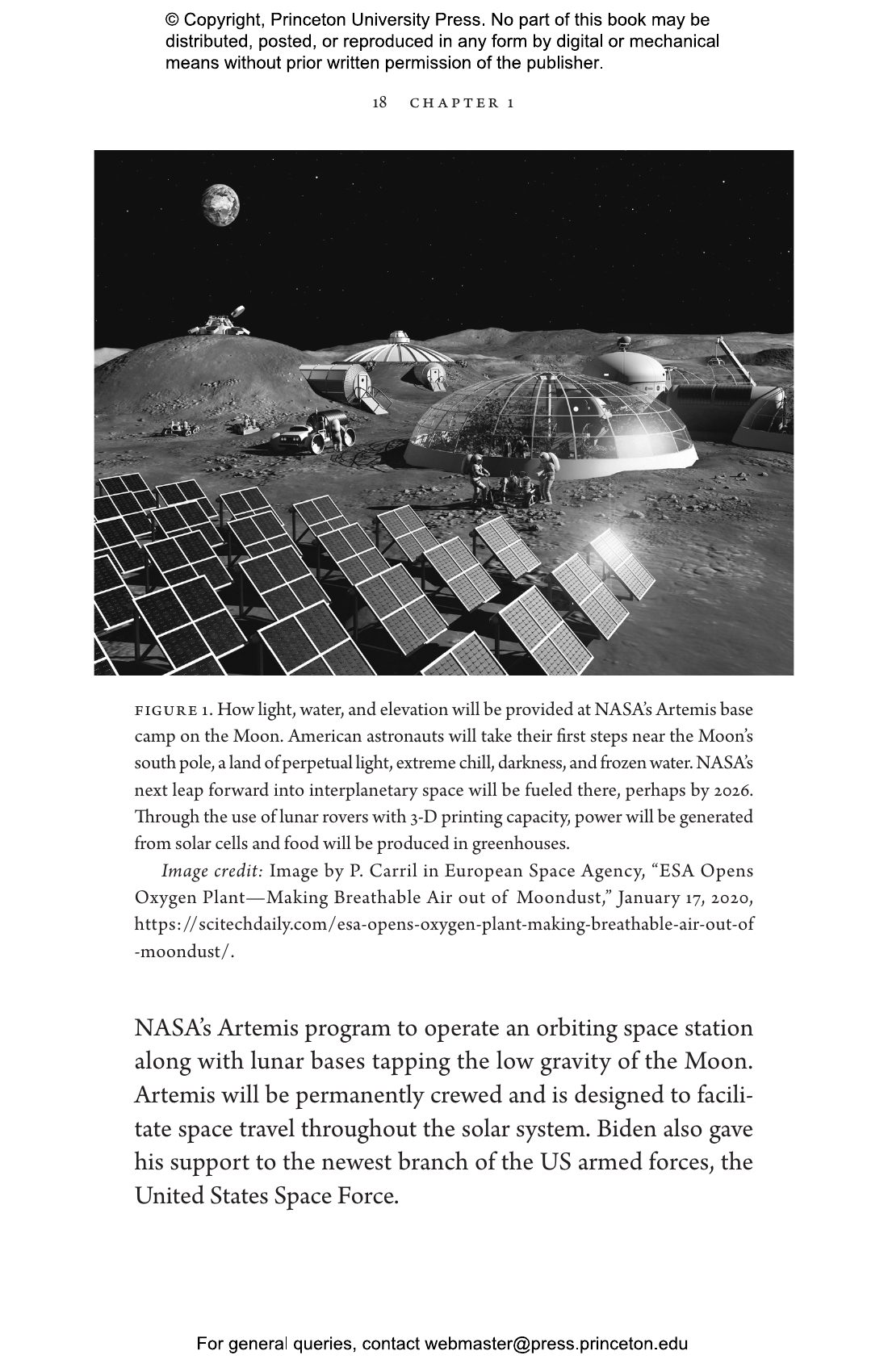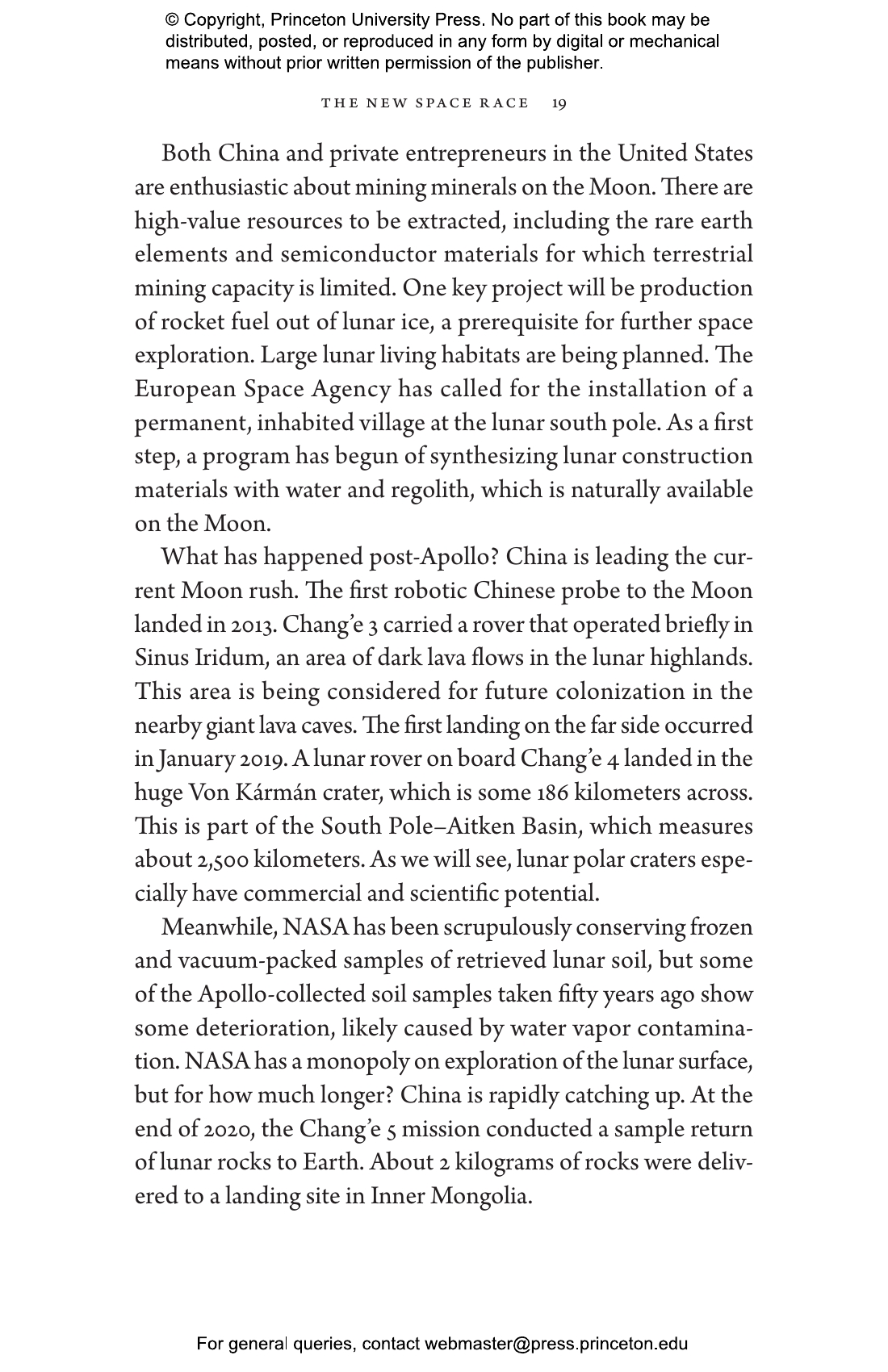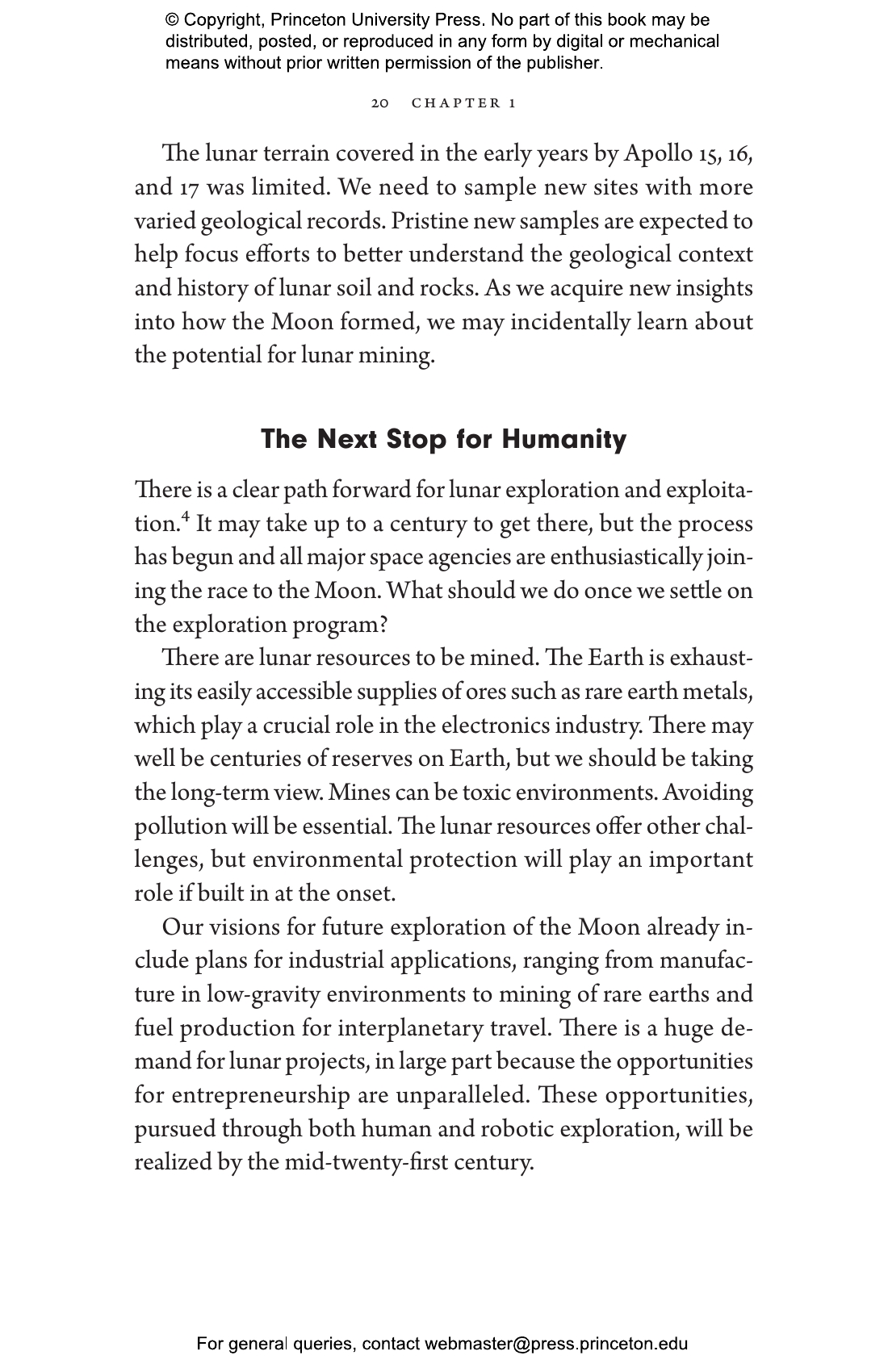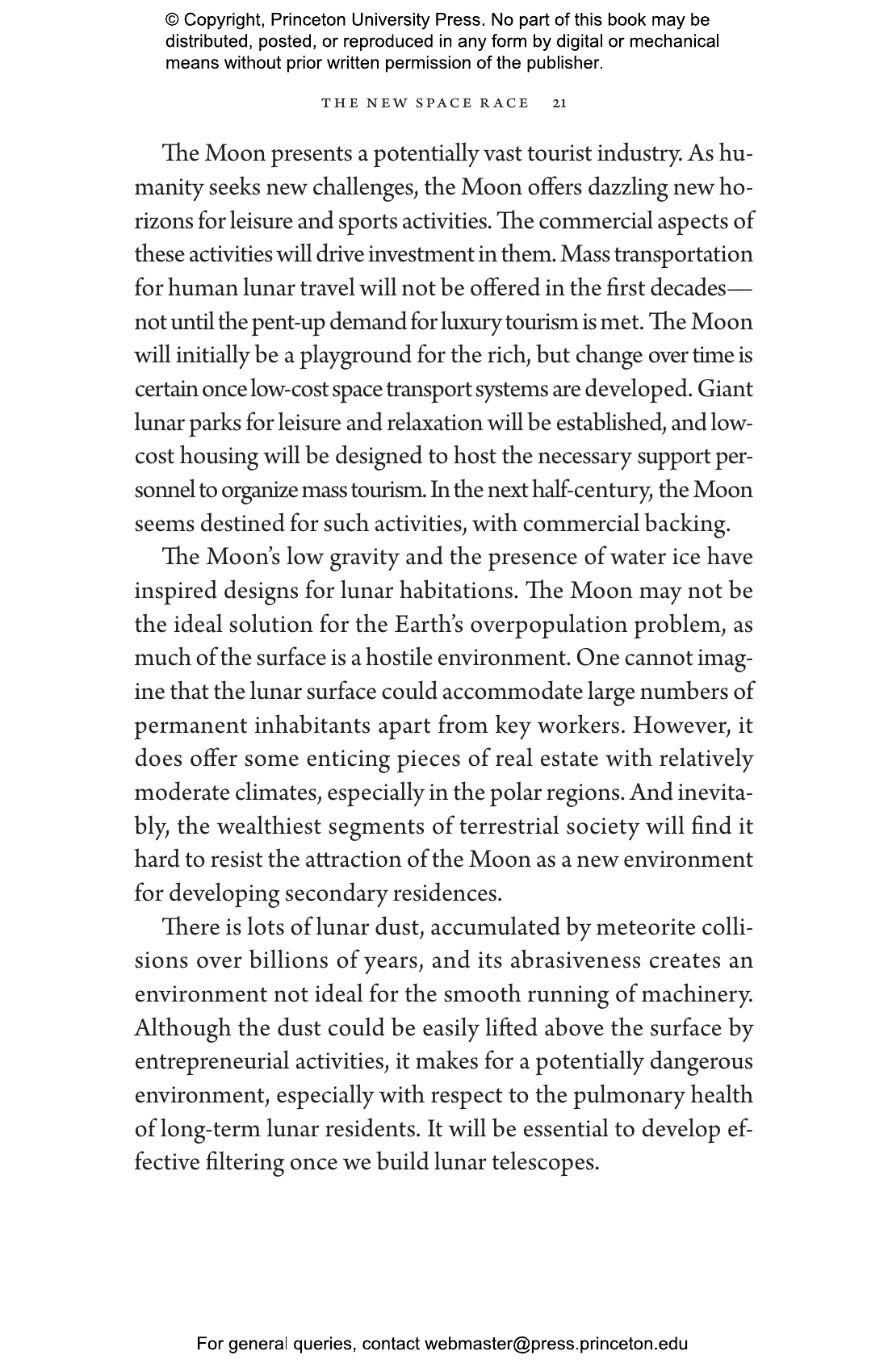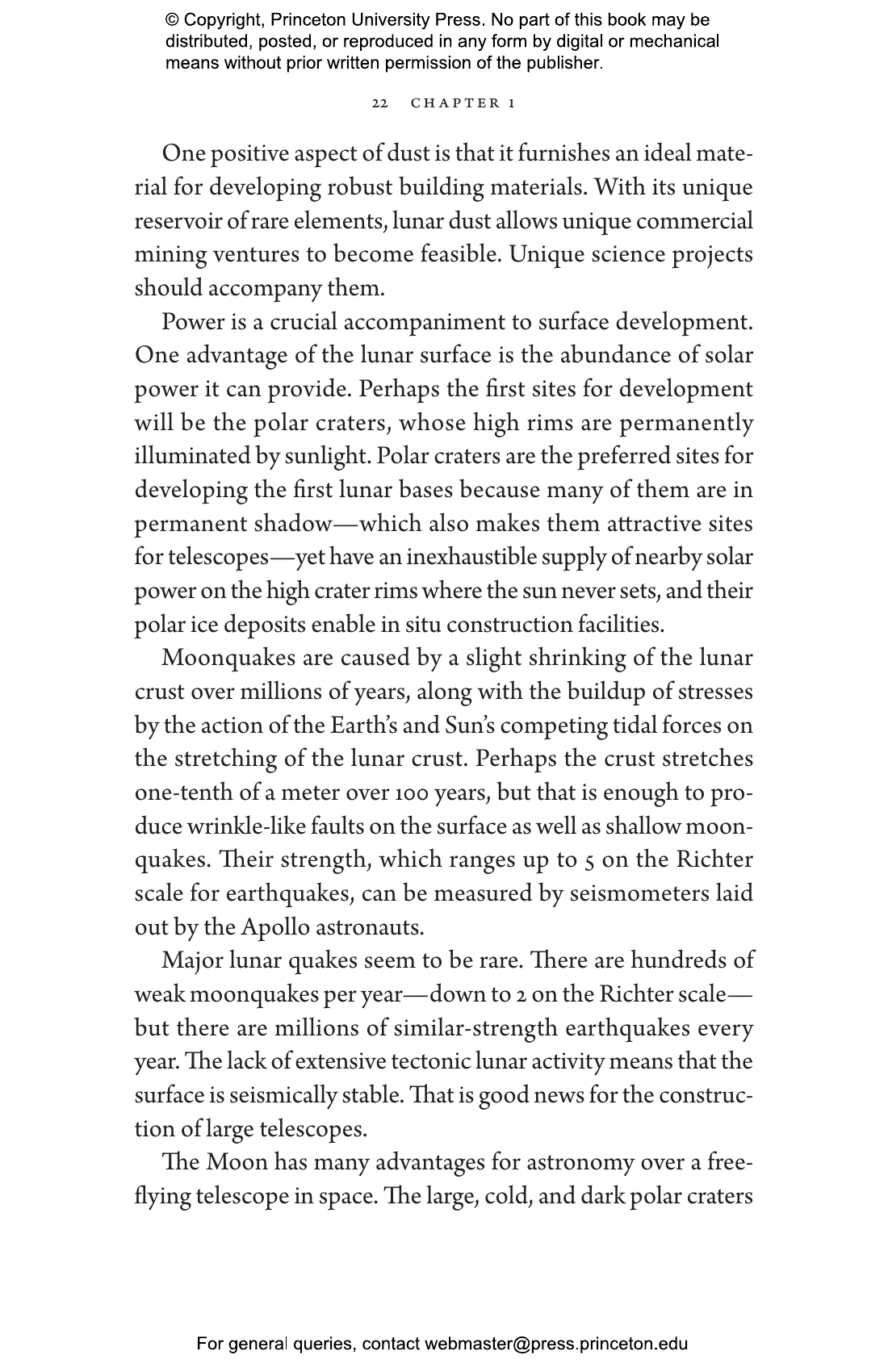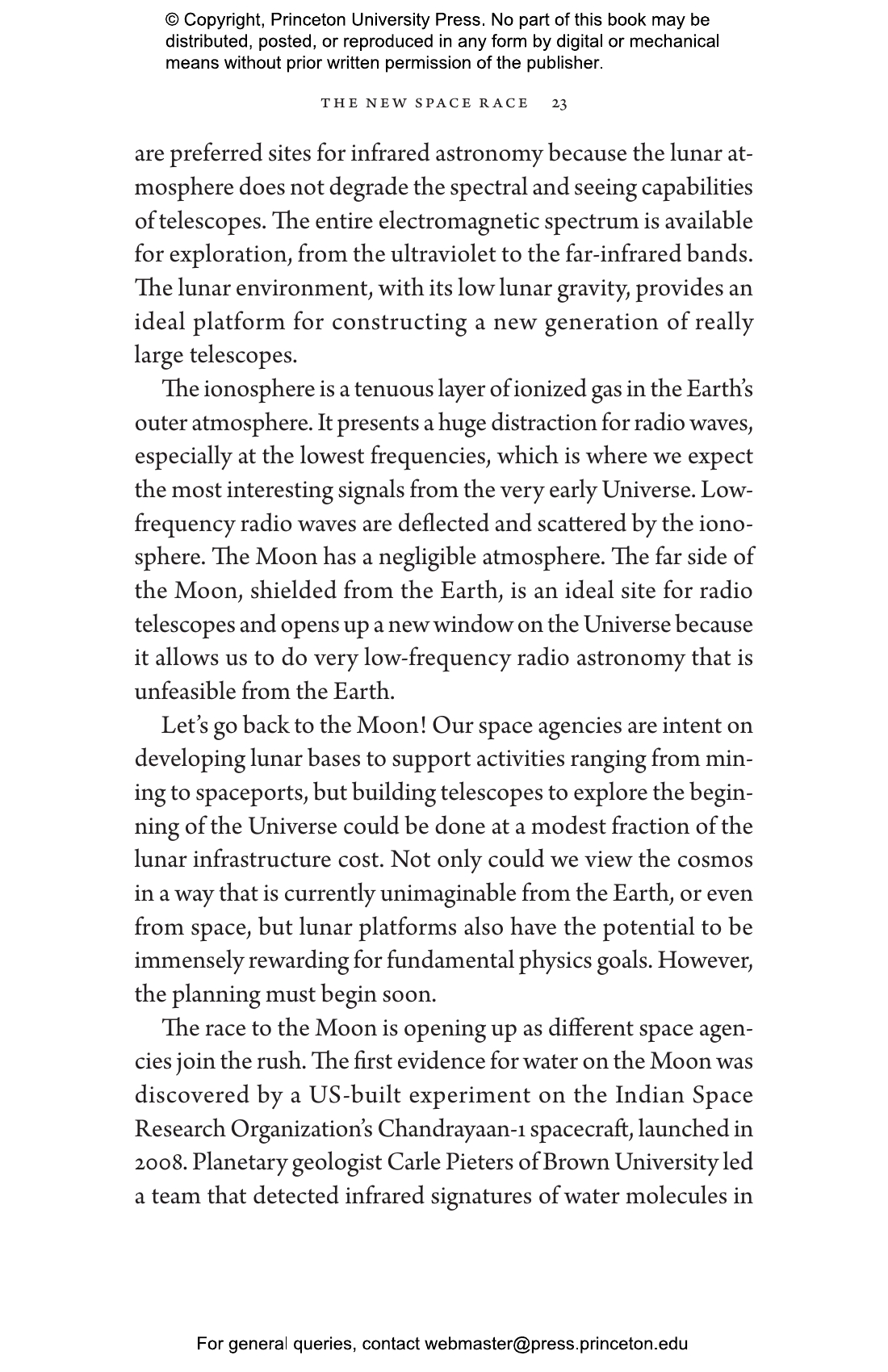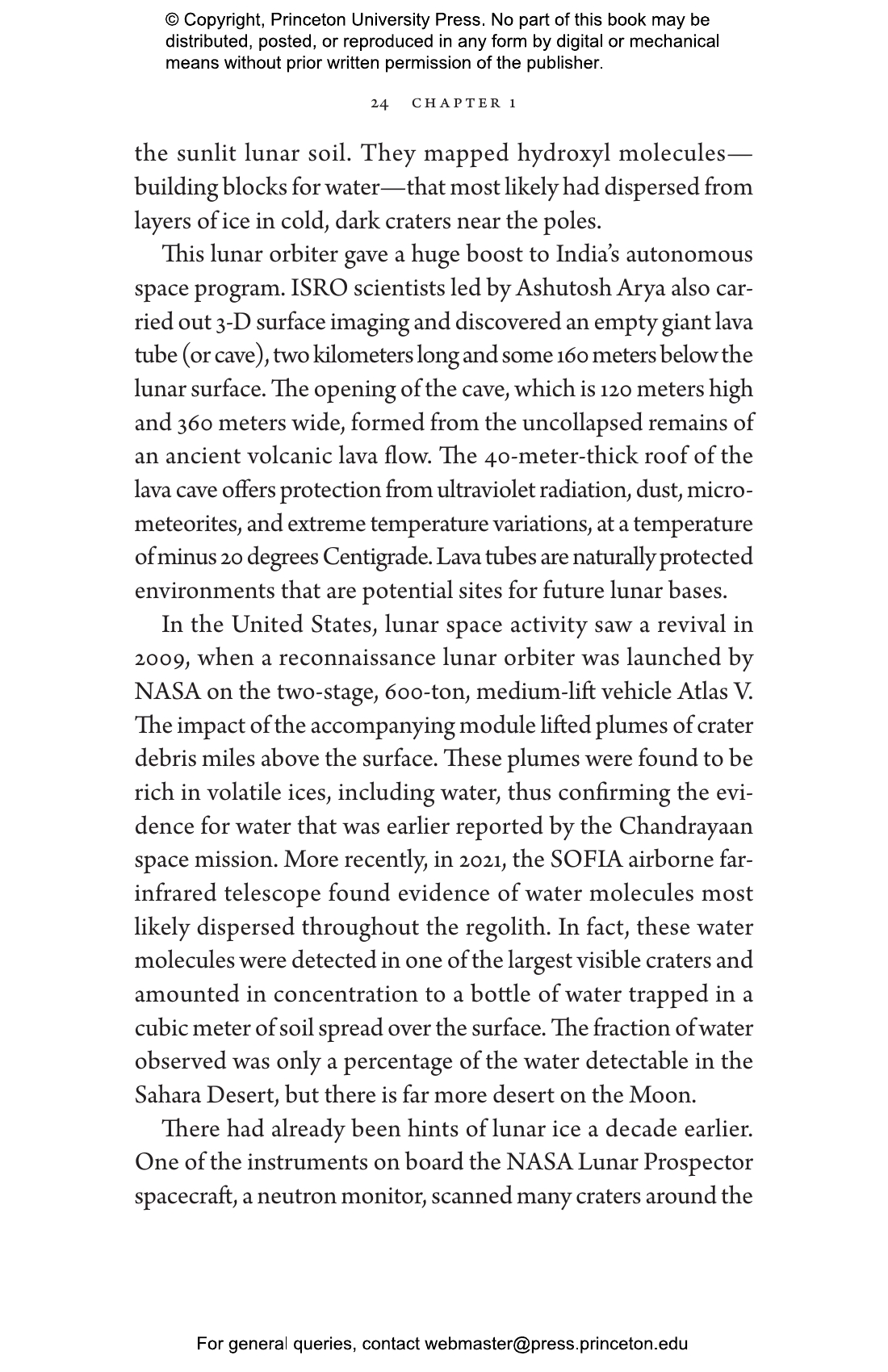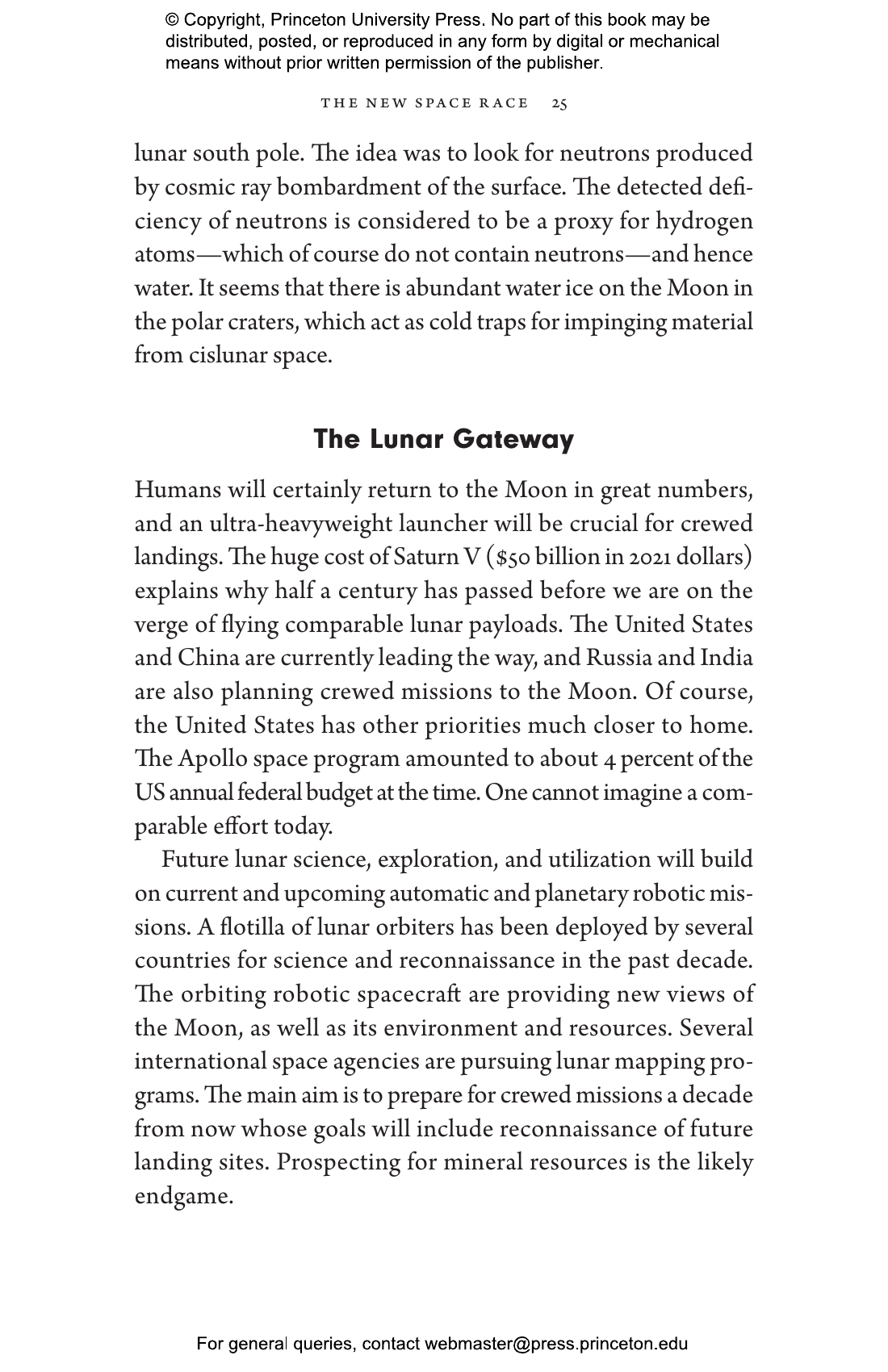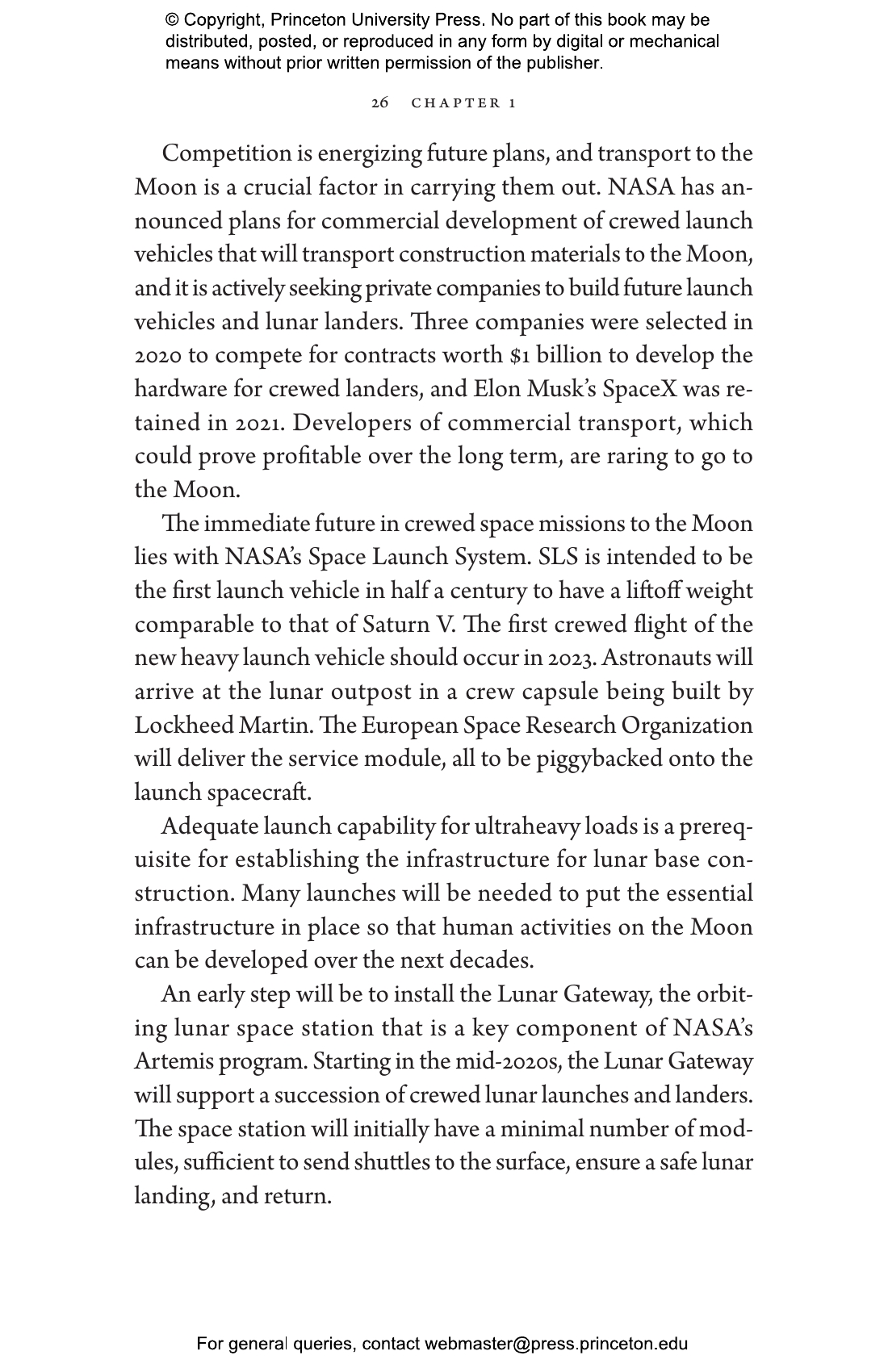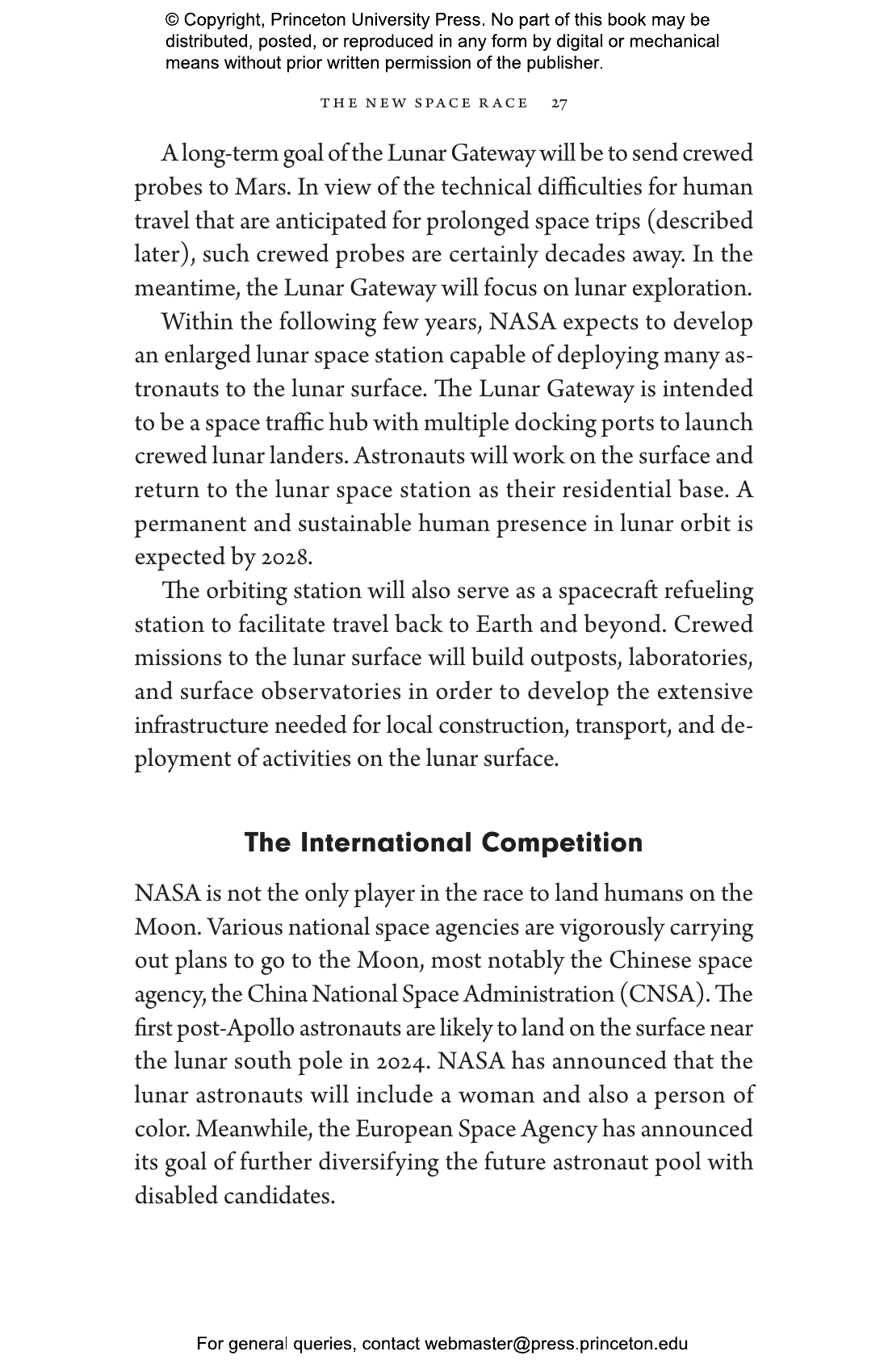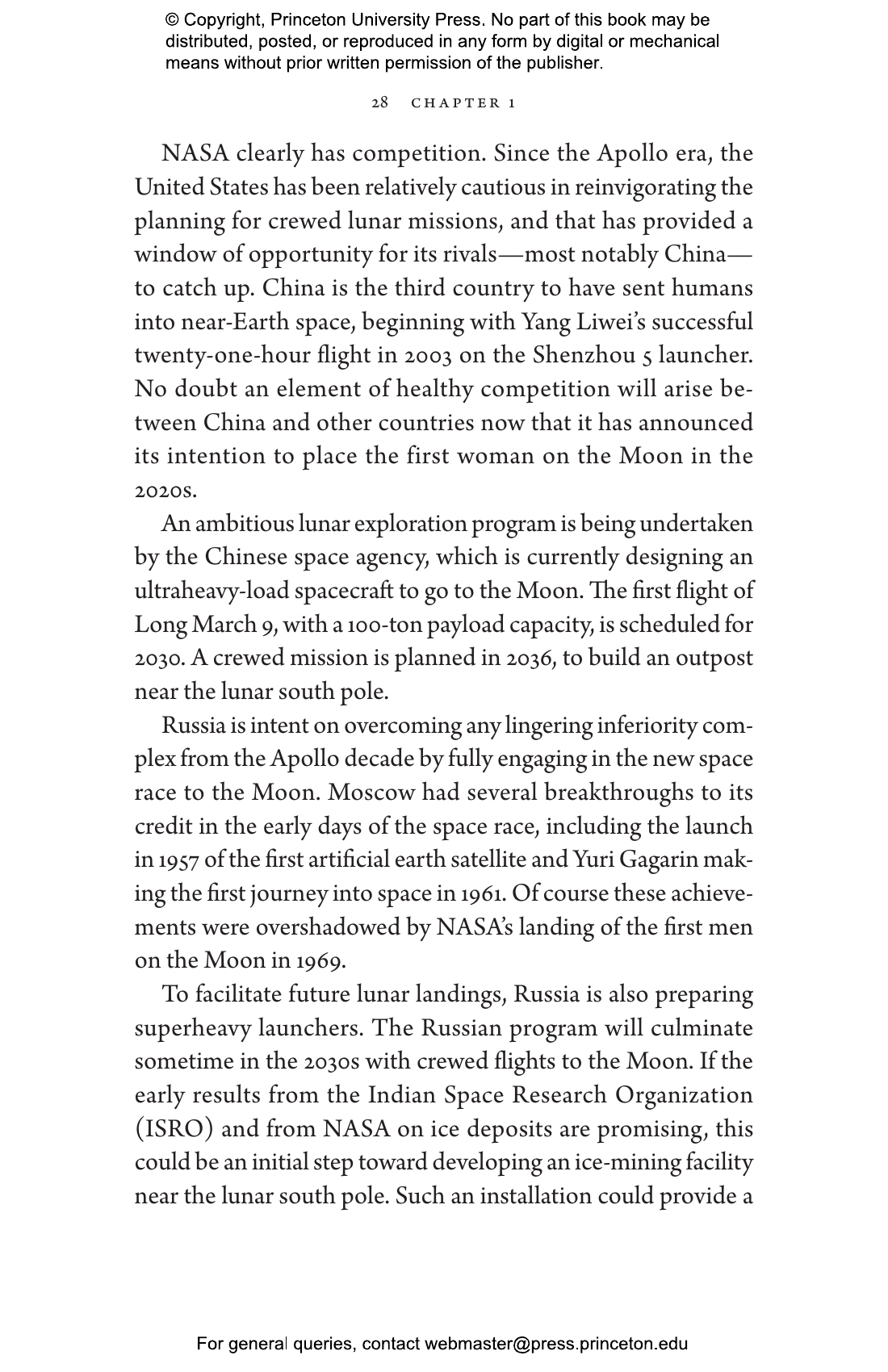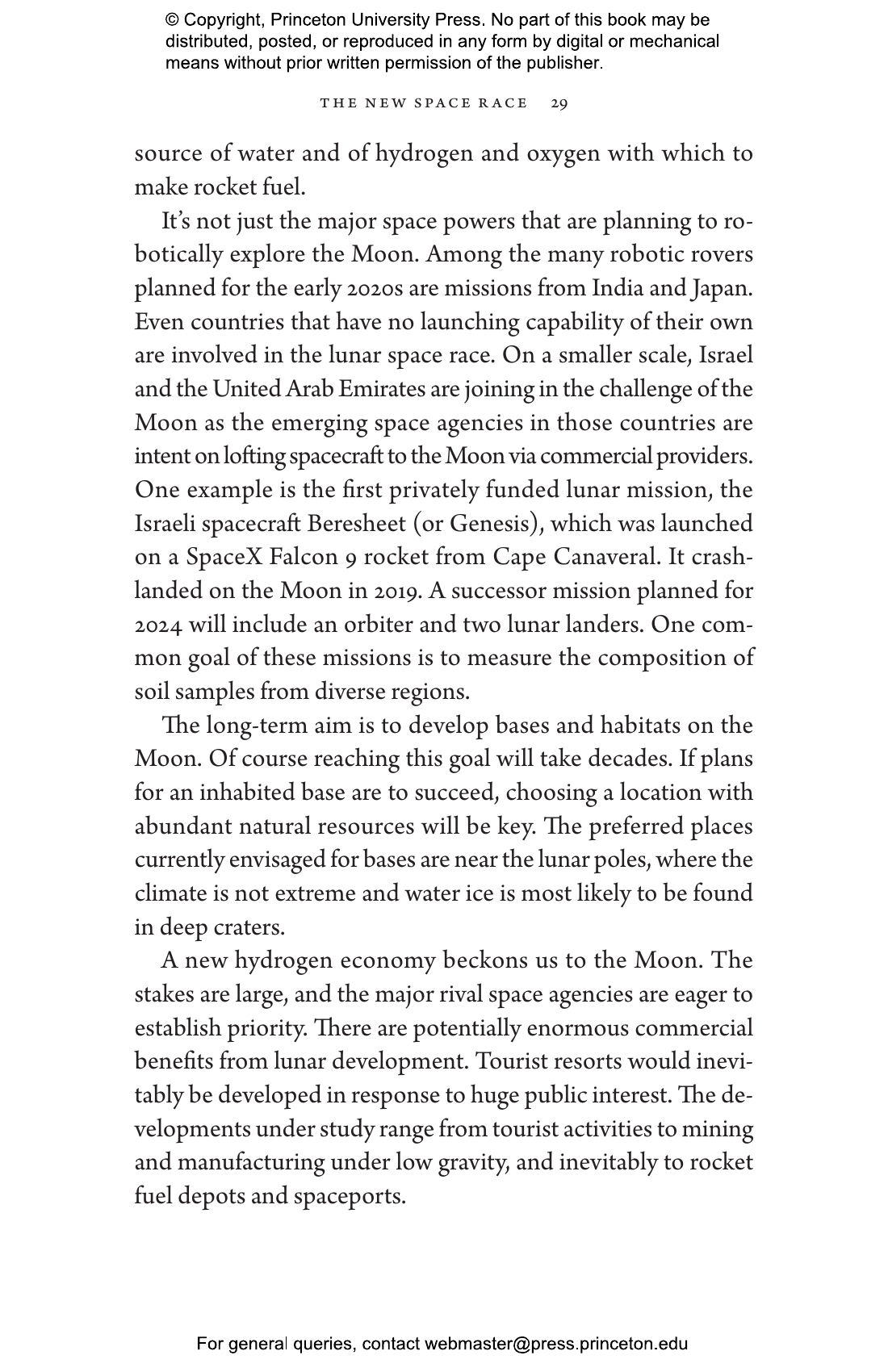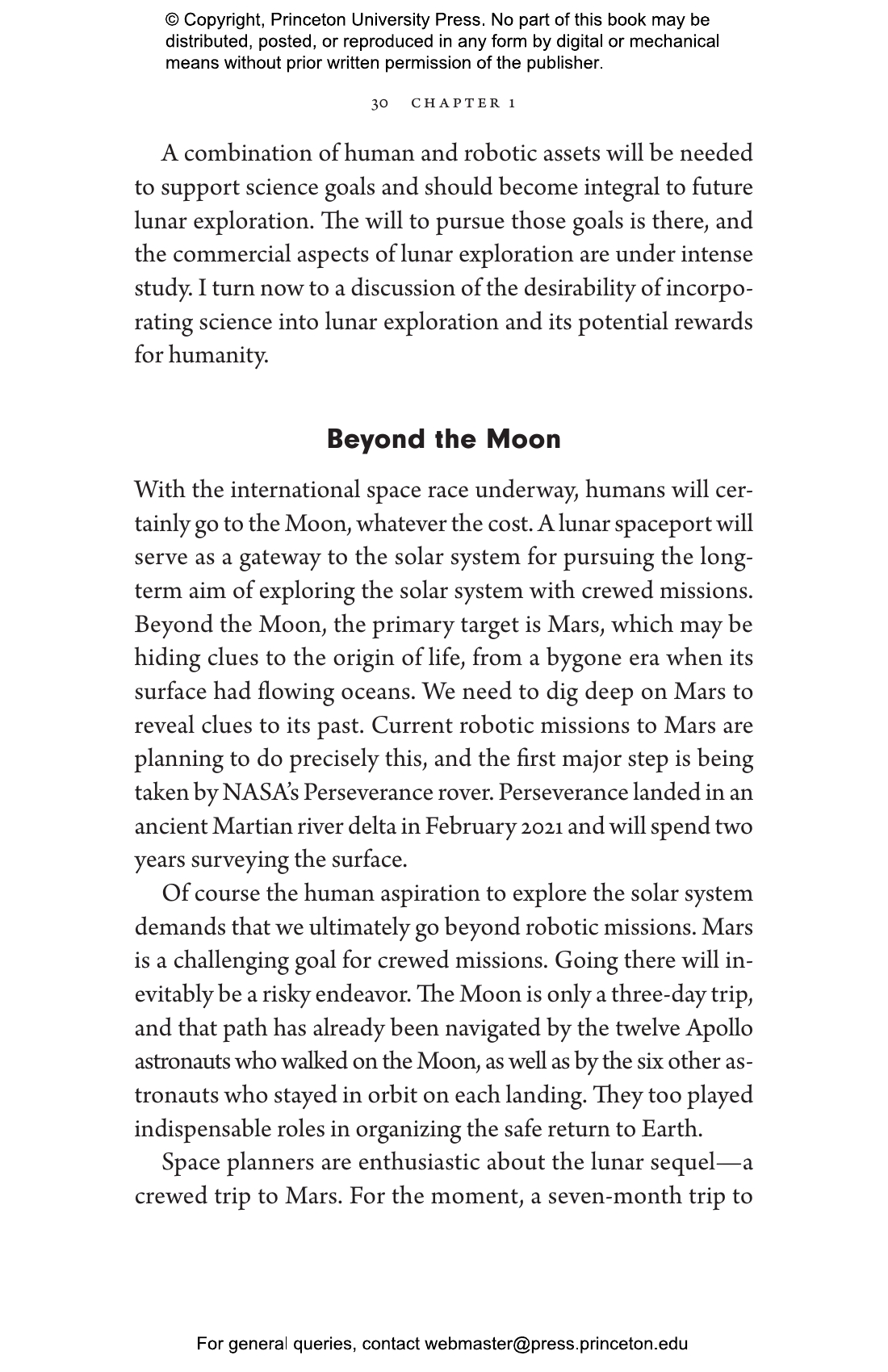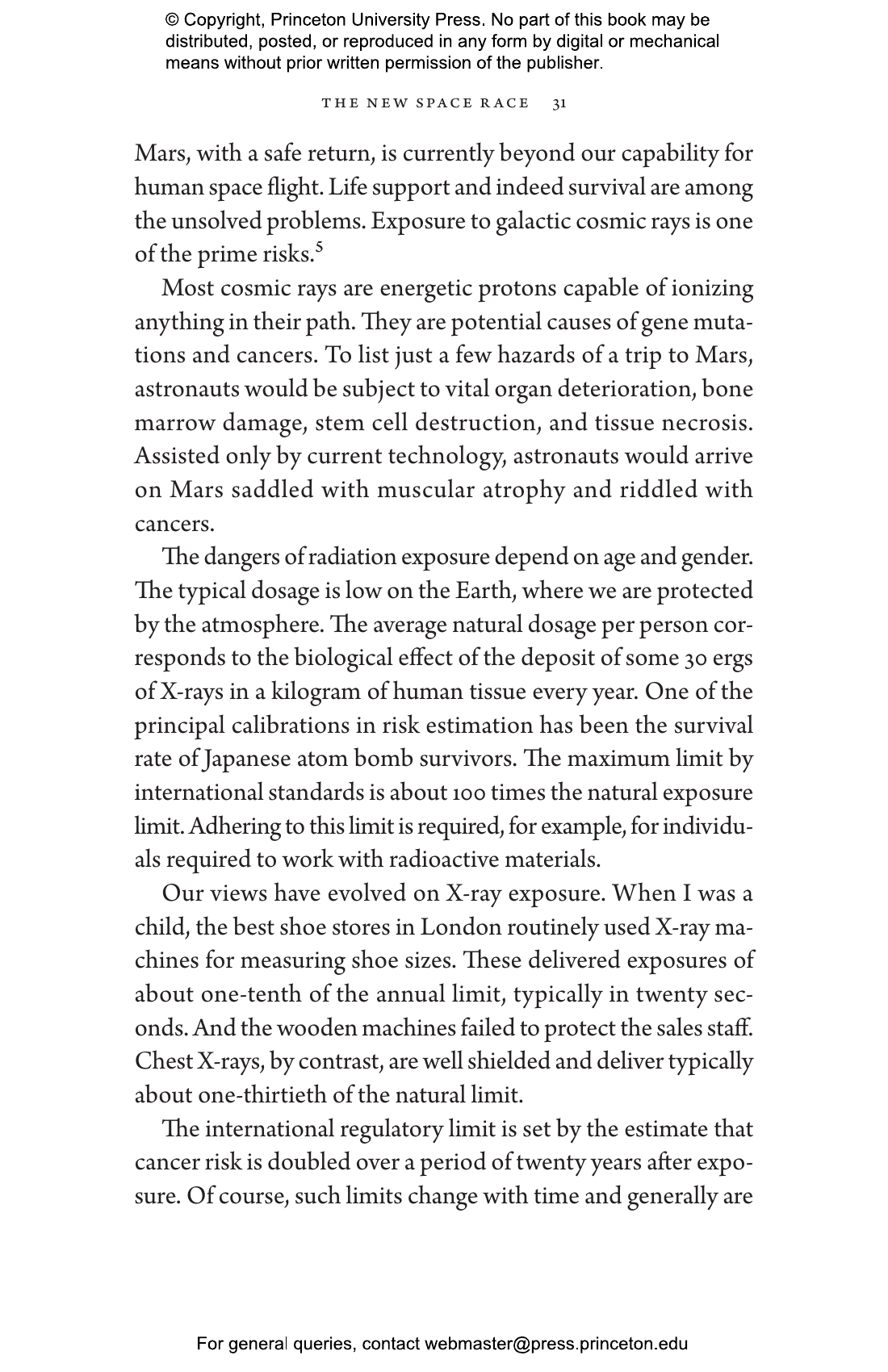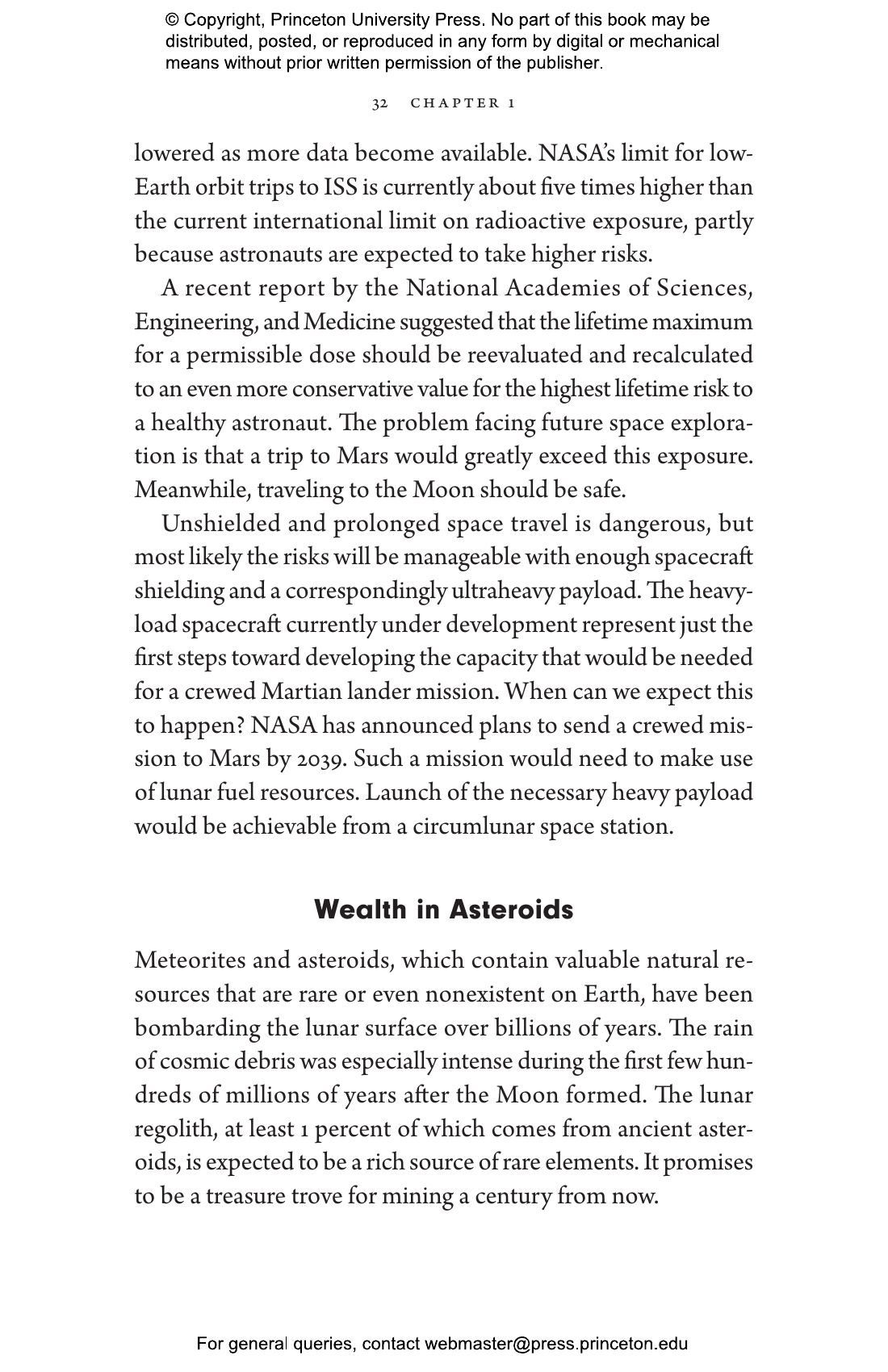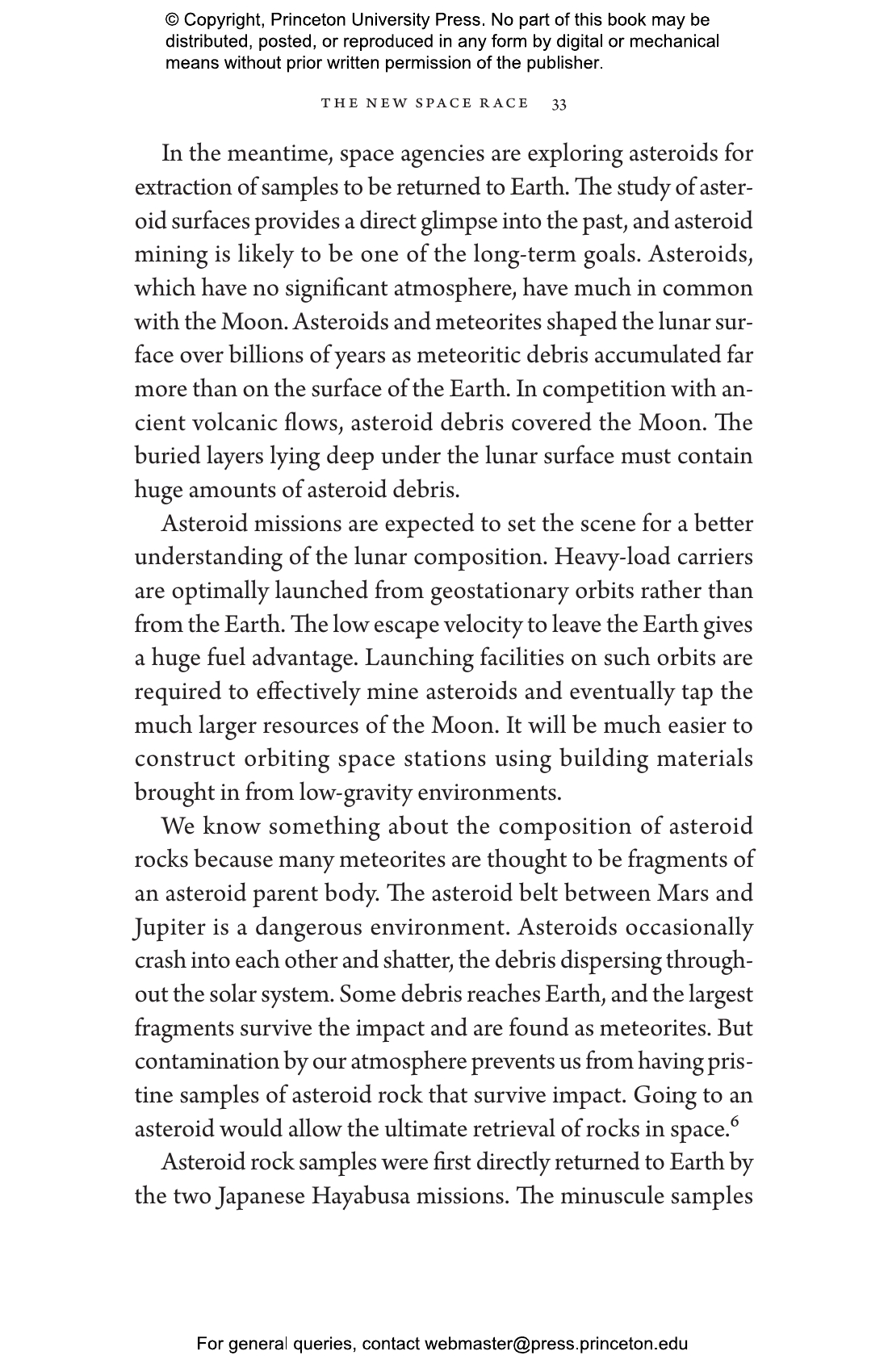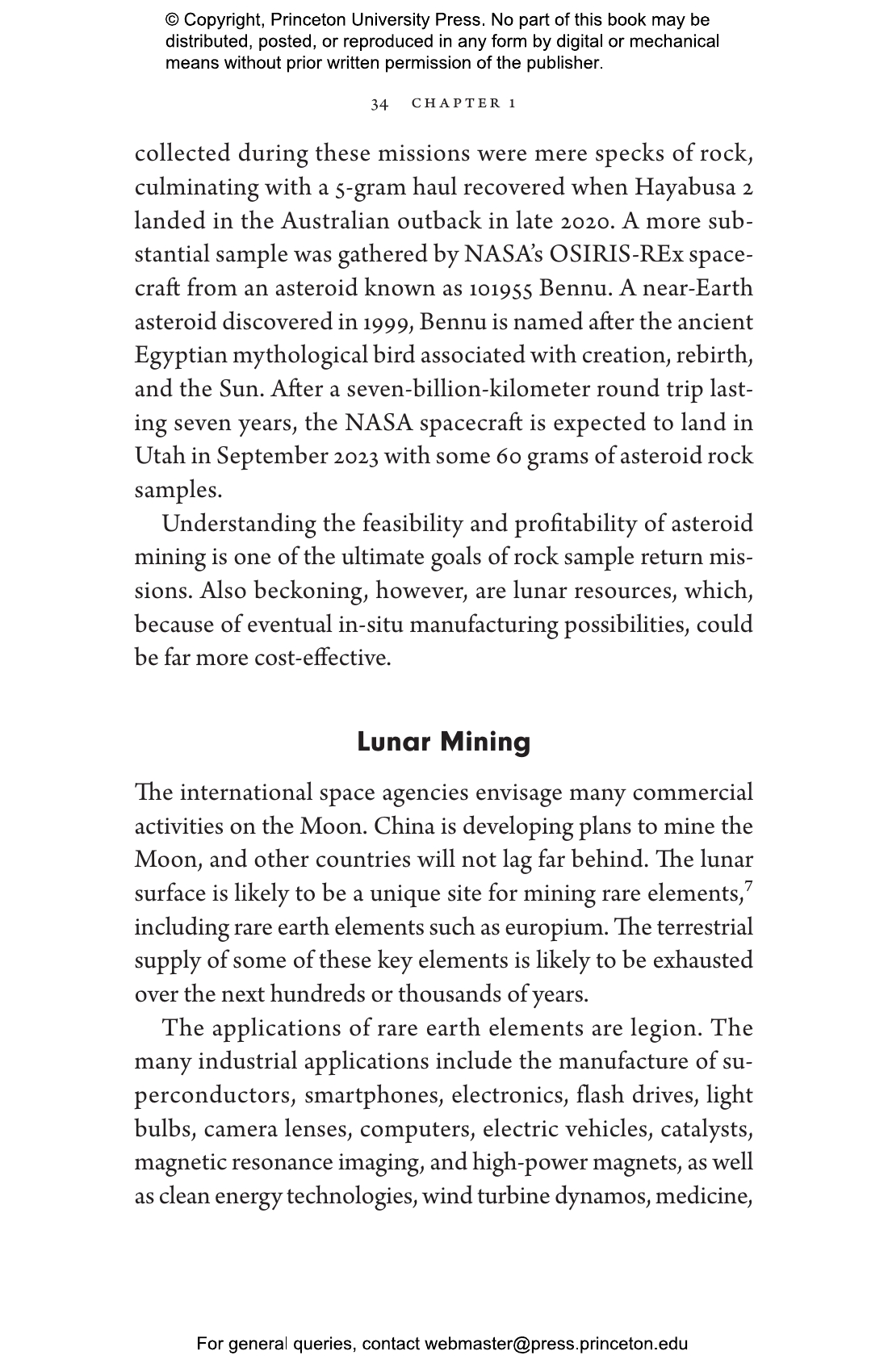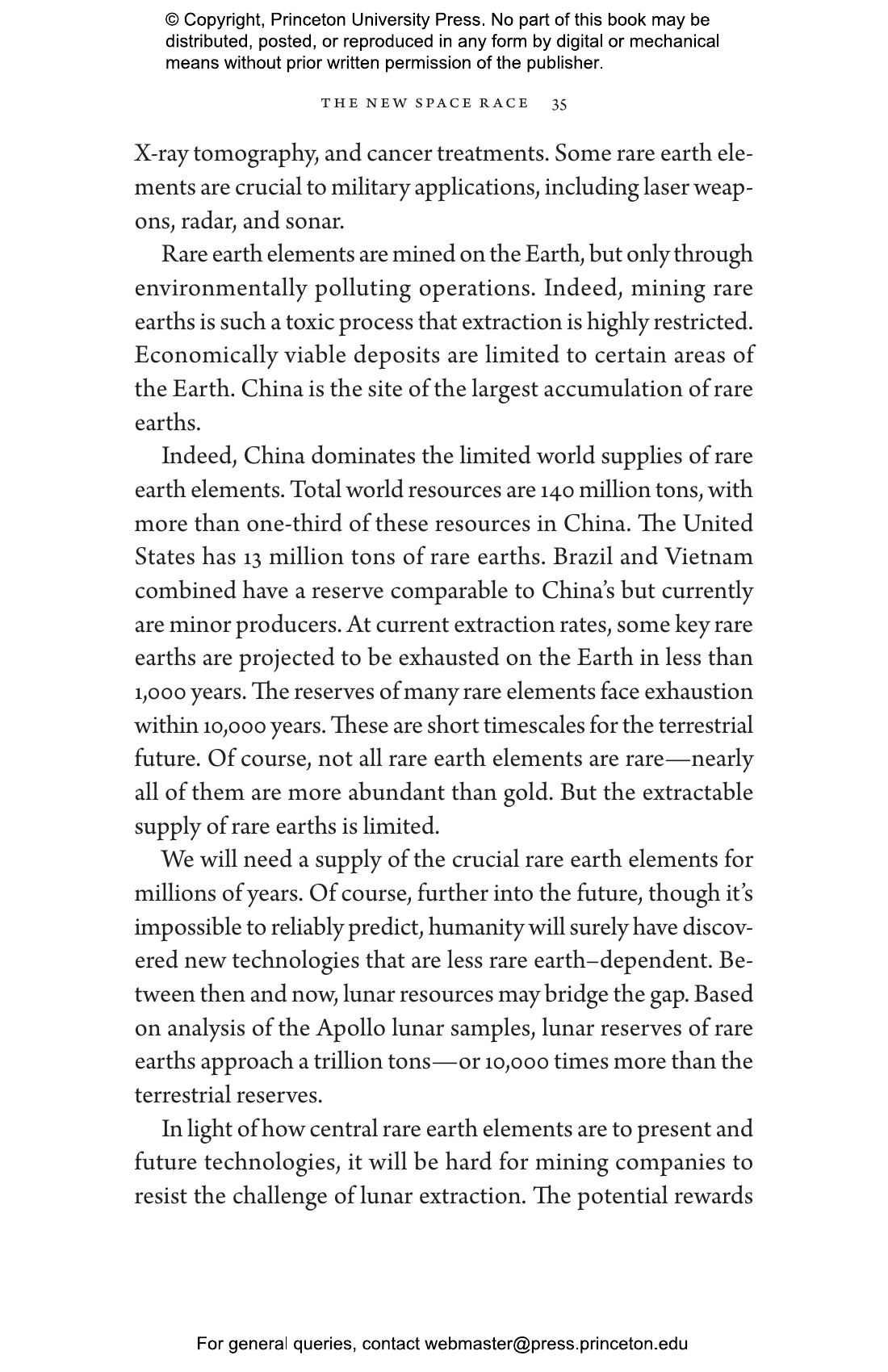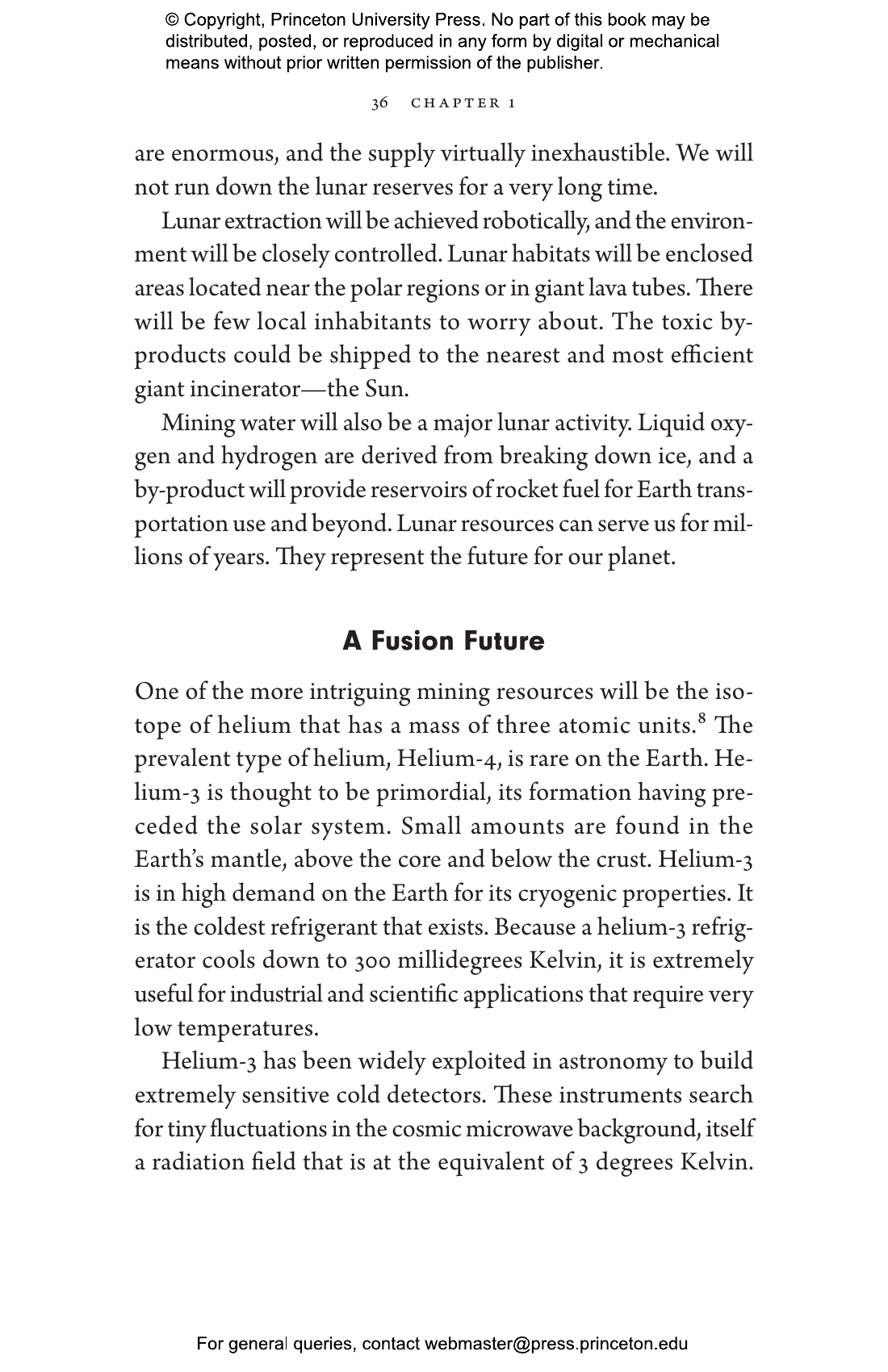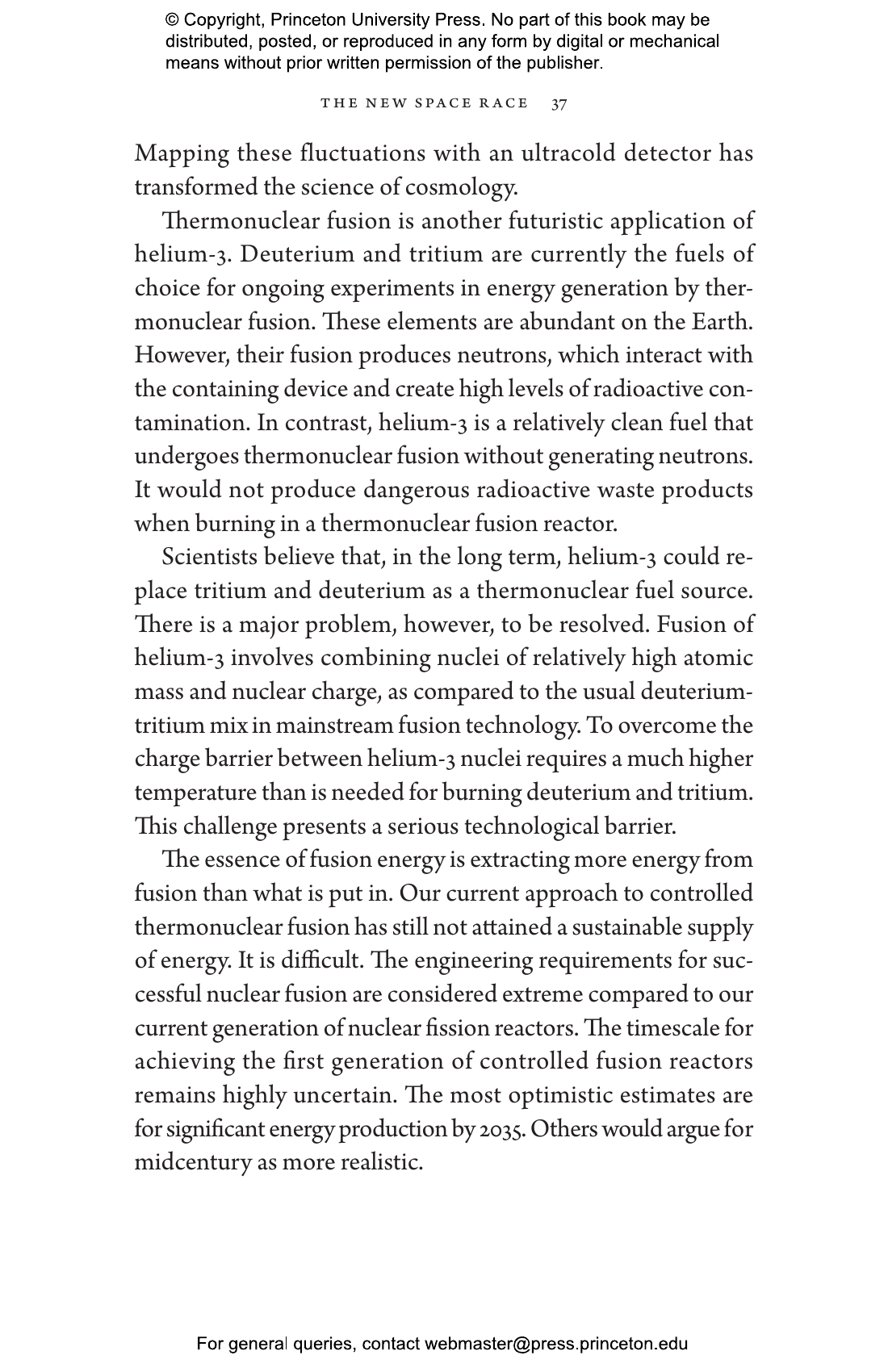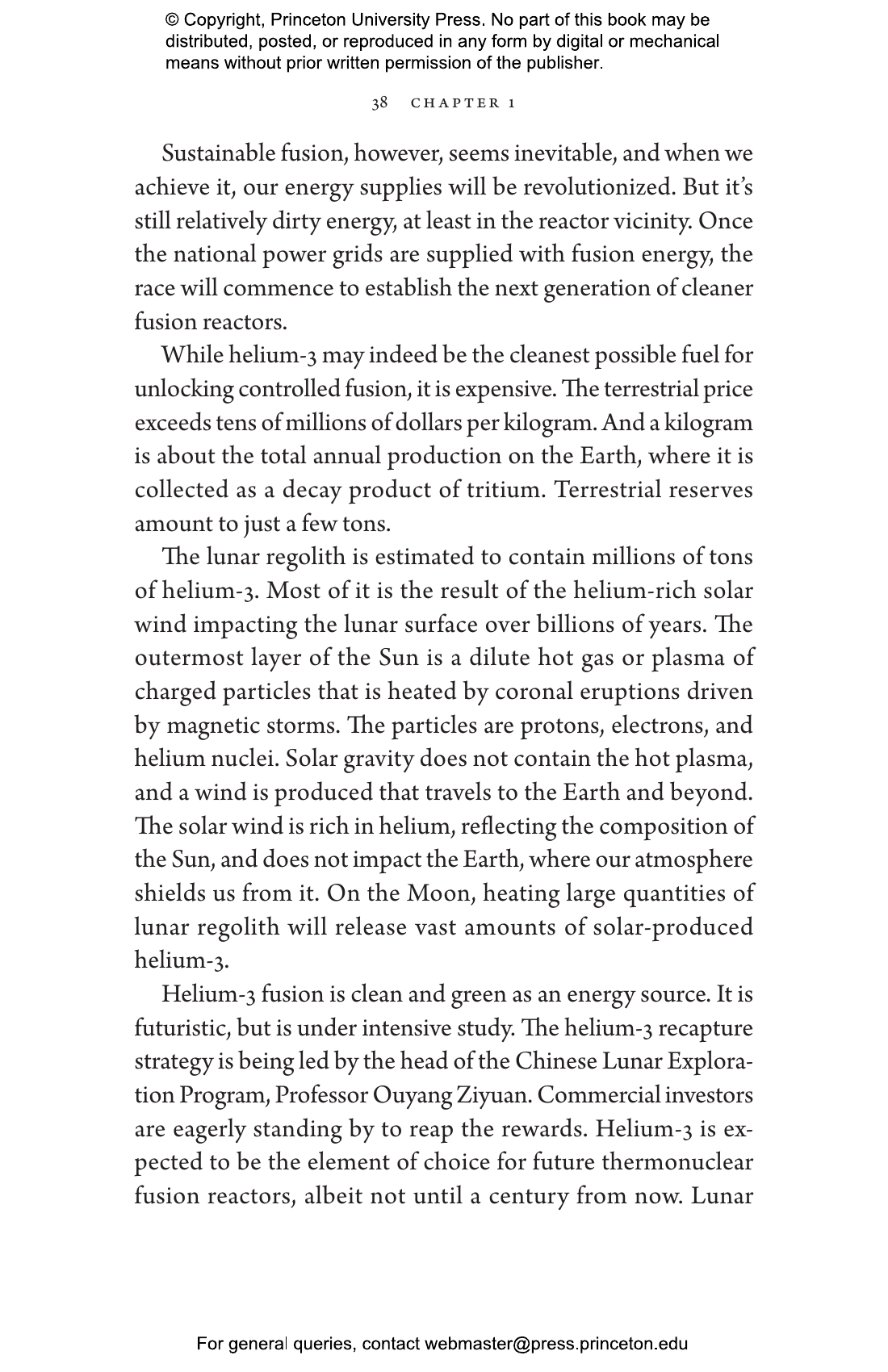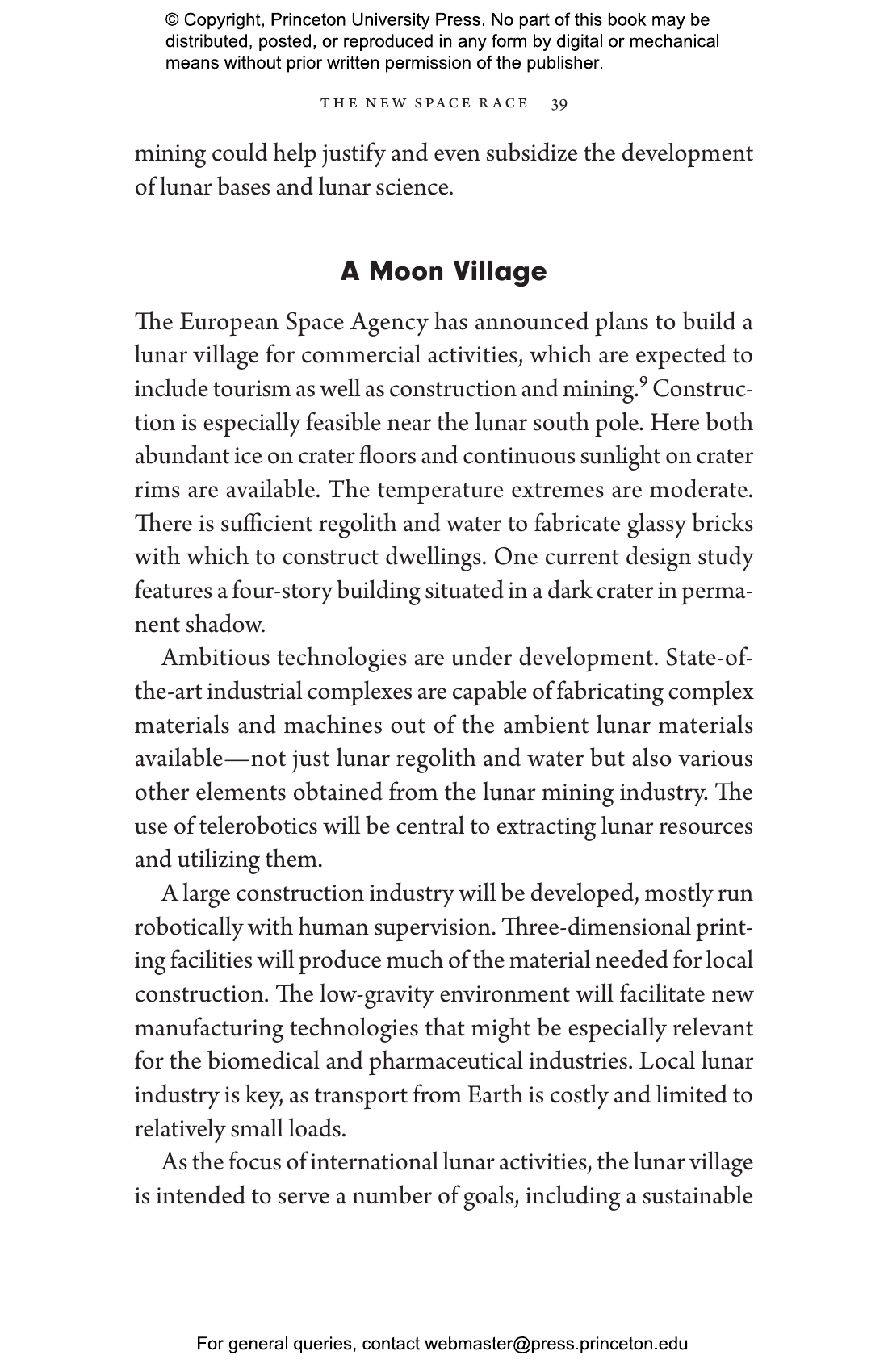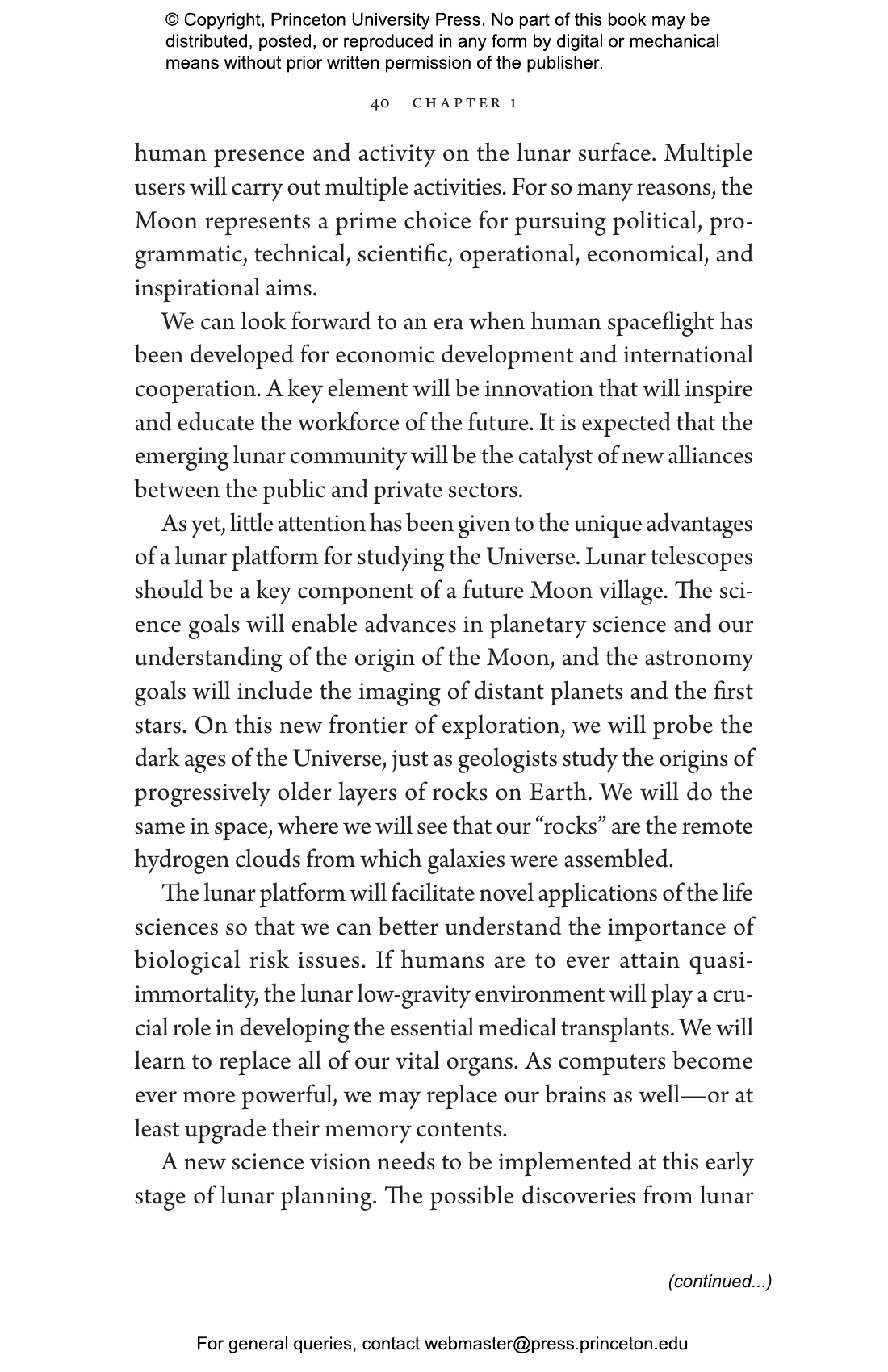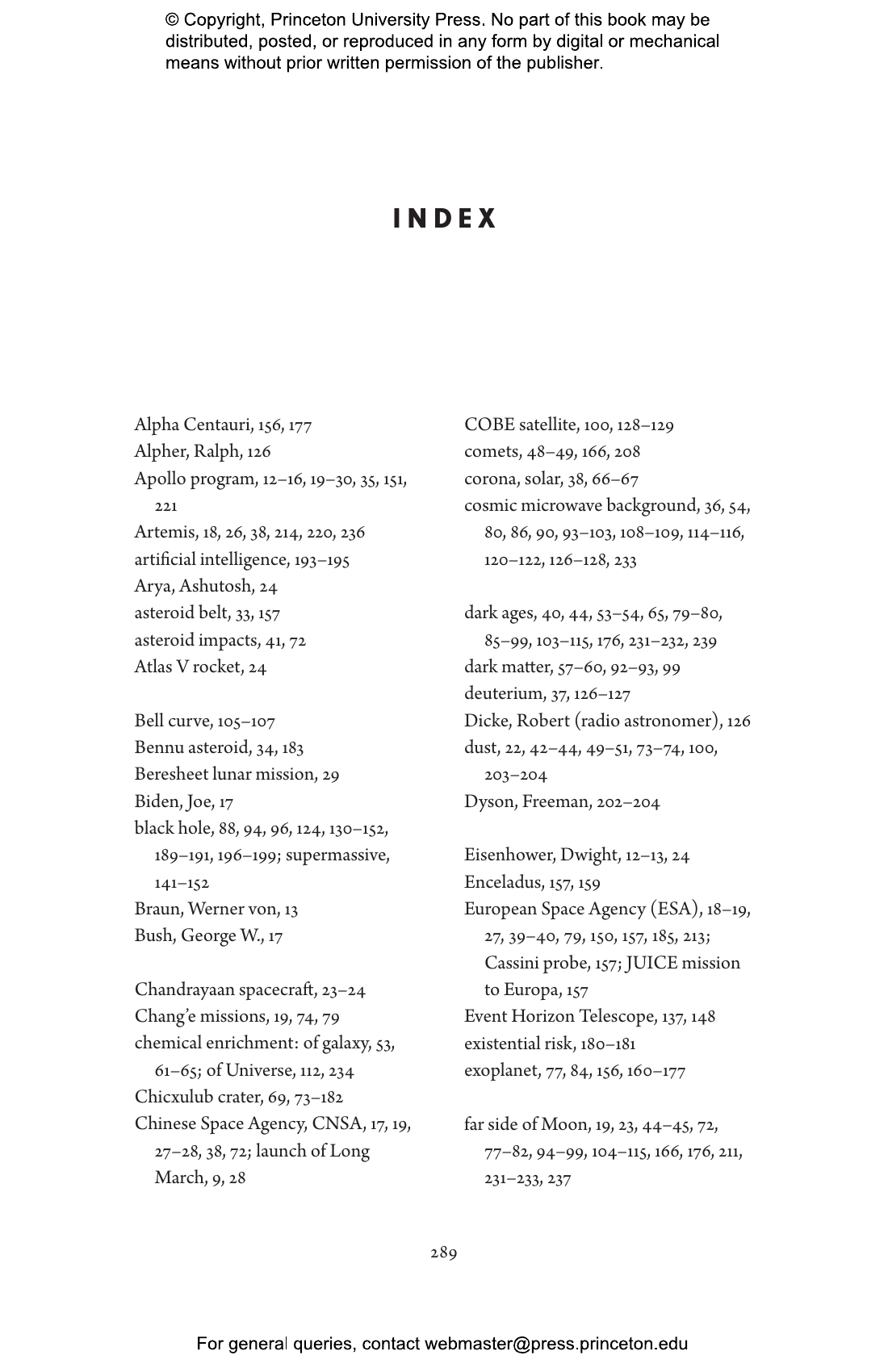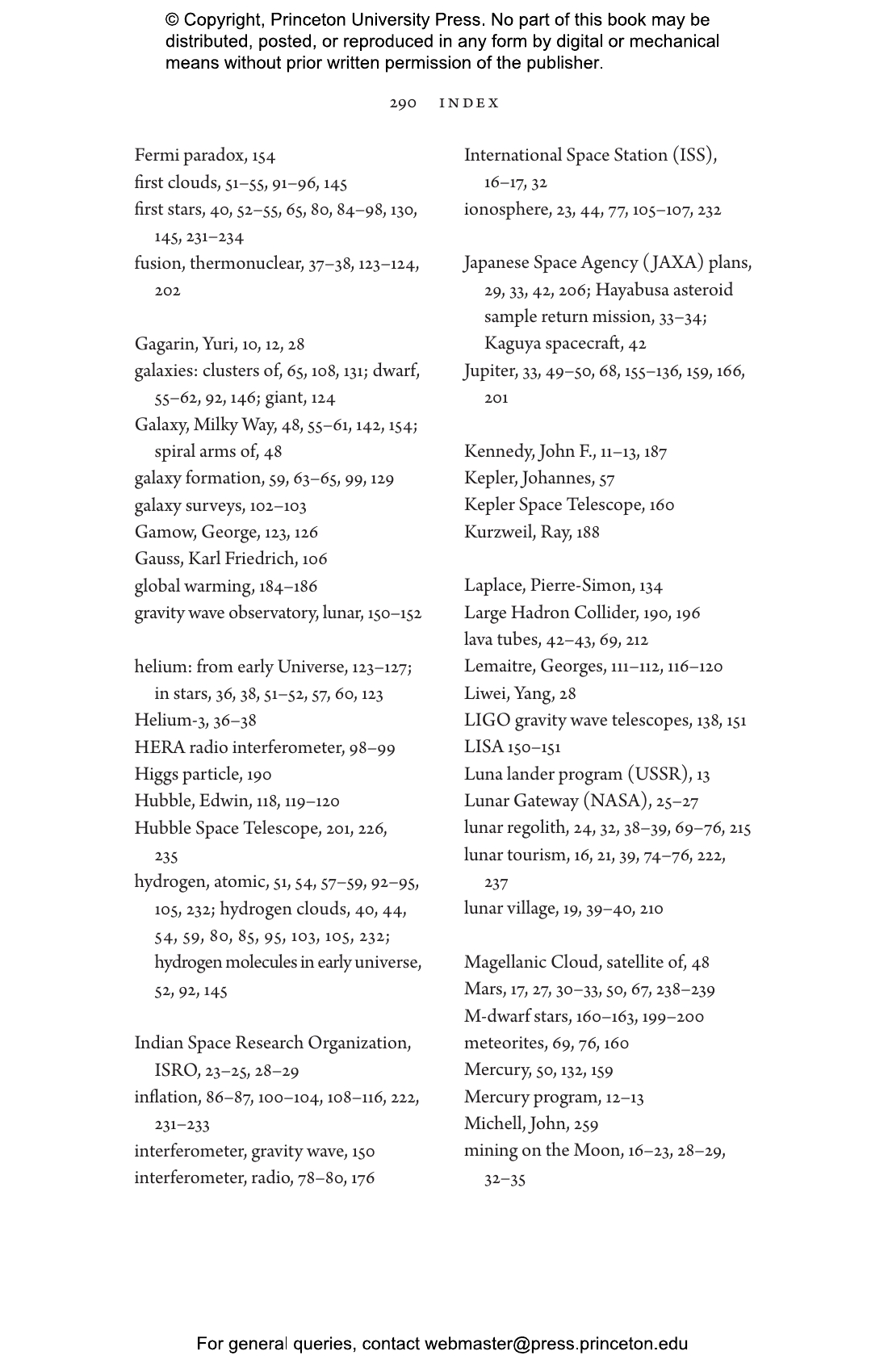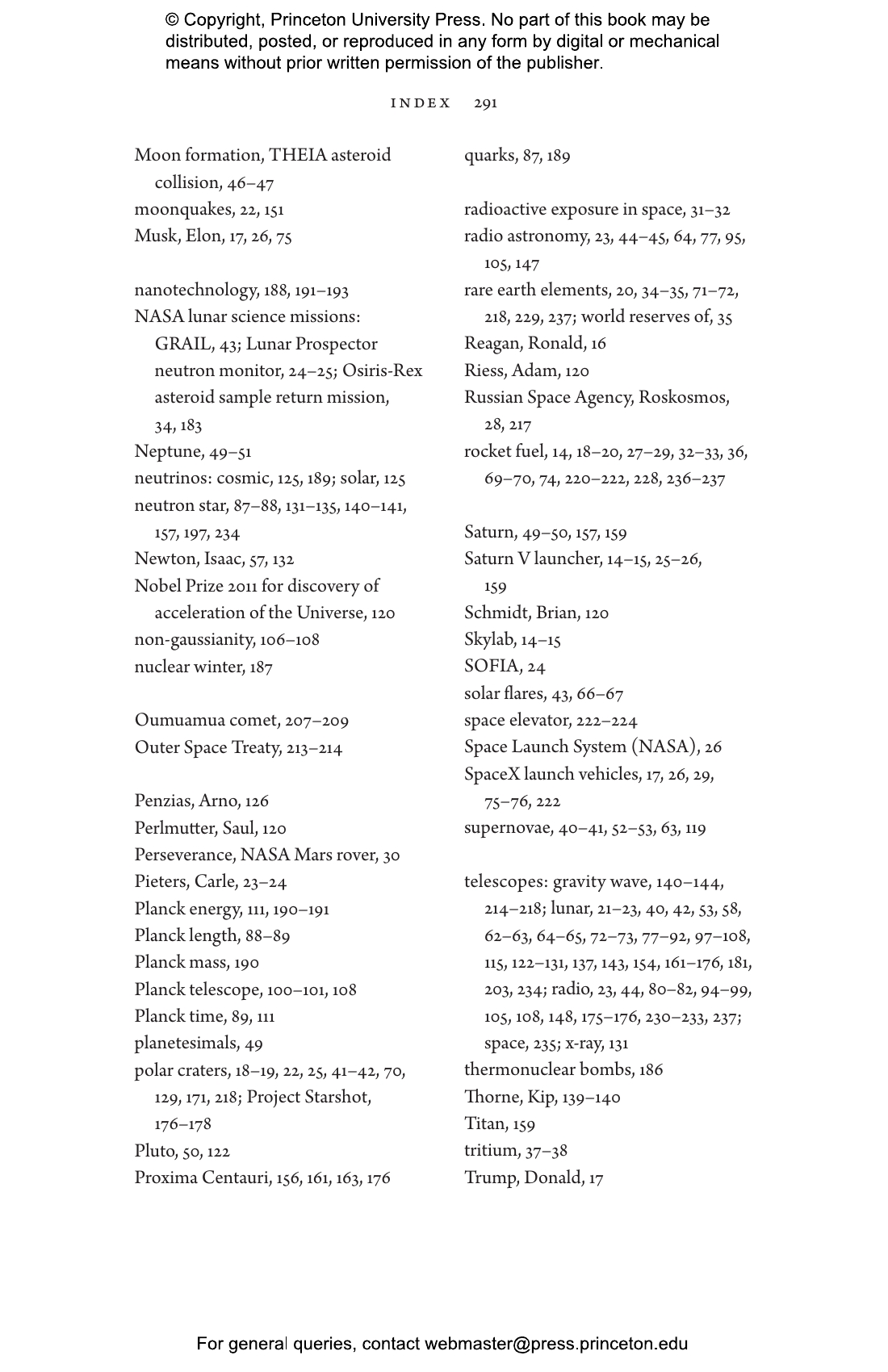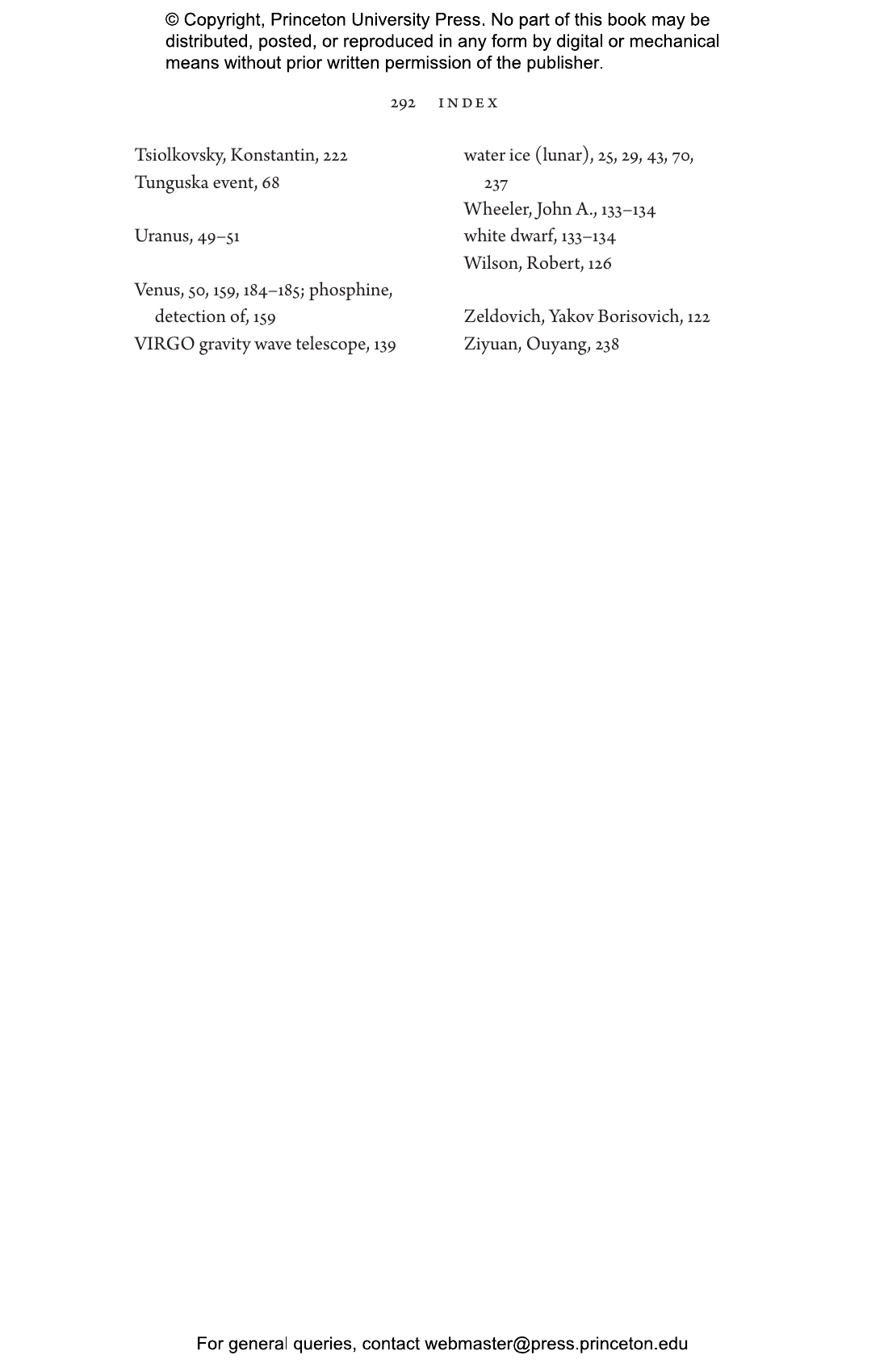Just over half a century since Neil Armstrong first stepped foot on the lunar surface, a new space race to the Moon is well underway and rapidly gaining momentum. Laying out a vision for the next fifty years, Back to the Moon is astrophysicist Joseph Silk’s persuasive and impassioned case for putting scientific discovery at the forefront of lunar exploration.
The Moon offers opportunities beyond our wildest imaginings, and plans to return are rapidly gaining momentum around the world. NASA aims to build a habitable orbiting space station to coordinate lunar development and exploration, while European and Chinese space agencies are planning lunar villages and the mining of precious resources dwindling here on Earth. Powerful international and commercial interests are driving the race to revisit the Moon, but lunar infrastructures could also open breathtaking vistas onto the cosmos. Silk describes how the colonization of the Moon could usher in a thrilling new age of scientific exploration, and lays out what the next fifty years of lunar science might look like. With lunar telescopes of unprecedented size situated in permanently dark polar craters and on the far side of the Moon, we could finally be poised to answer some of the most profound questions confronting humankind, including whether we are alone in the Universe and what our cosmic origins are.
Addressing both the daunting challenges and the immense promise of lunar exploration and exploitation, Back to the Moon reveals how prioritizing science, and in particular lunar astronomy, will enable us to address the deepest cosmic mysteries.
"A stirring case for permanent habitation of the lunar surface."—Steven Poole, Wall Street Journal
"Silk does a great job of summing up why the Moon should be important to humanity as a platform for science of all sorts. But the crux of “Back to the Moon” is really Silk’s clarion call of humanity to actualize its astronomical potential. . . . In his timely book, Silk makes a strong and important case for a robust return to the Moon for science."—Bruce Dorminey, Forbes
"An enthusiastic account of the future of space exploration, and specifically the role of the Moon in it. . . . The scope of Silk’s survey is impressive. . . . [Silk’s] enthusiasm and accessible explanations bring the high-altitude thought experiments down to earth. Readers dreaming of civilizations in space will find plenty to consider."—Publishers Weekly
"This riveting work by accomplished astrophysicist Silk examines the exciting possibilities of returning to the moon. . . . [Silk] employs engaging, lively prose, which will appeal to a wide range of readers."—Library Journal
"Back to the Moon excites and inspires with its stunning suggestions for what the next fifty years of lunar exploration might entail, and it advocates for the primacy of science over politics and profit."—Kristine Morris, Foreword Reviews
"Impassioned. . . . Silk puts forward intriguing ideas."—Kirkus Reviews
"While the book is suitable for those starting out in their quest to learn and understand the possibilities of lunar exploration, it will also appeal to those more experienced reader requiring an up-to-date account. Perfect for readers at any level, Back to the Moon will satiate the most curious of minds."—Katrin Raynor, BBC Sky at Night
"[The] book is going to hit a wide public audience and is in part mind-boggling . . . it’s impossible not to be caught up in the fizzing scientific curiosity that drives the book’s narrative."—Richard Lofthouse, Quad
"The exploitation of the Moon in the next decade should be of wide general interest and this book will help inform that."—Peredur Williams, The Observatory
“This book cuts a unique swath through the panoply of recent books celebrating the anniversary of Apollo 11 and new missions to the Moon. Focused on the potentially exciting future of astronomical observations from the Moon, Silk makes the case that lunar astronomy will revolutionize our view of the cosmos by pioneering new investigations into the early universe and the possibility of life on other planets. There is no other book like it.”—Jack Burns, University of Colorado Boulder
“Famed cosmologist Joseph Silk makes a forceful case for our return to the Moon. He shows that the Moon is full of opportunities to advance science far beyond our present capabilities. There’s plenty here for layperson and specialist alike.”—Martin Elvis, author of Asteroids: How Love, Fear, and Greed Will Determine Our Future in Space
“Silk weaves together the themes of science, technology, and geopolitics to produce a compelling argument for a return to the Moon. He shows that our closest cosmic neighbor, far from being an inert and arid environment, is both an outstanding scientific target in its own right and an ideal platform for exploring our cosmos.”—John Zarnecki, past president of the Royal Astronomical Society
“Written by one of today’s brightest and most prolific astrophysicists, this inspiring book provides a vivid account of the breathtaking cosmic discoveries that await us when we return to the Moon.”—Jean Audouze, emeritus director of research at CNRS
“As an expert in Big Bang cosmology, primordial black holes, and other cosmological phenomena, Joseph Silk now advocates a privileged use of the Moon for conducting breakthrough science that could transform our view of the cosmos. He also foresees human settlements on the Moon, with luxury hotels and industrial activities such as mining, but he warns that space colonization should not distract us from protecting Mother Earth.”—Antoine Labeyrie, Collège de France
“In this exciting and timely book, Joseph Silk makes a compelling case for returning humans to the Moon. Weaving together all the multiple arguments for lunar exploration, from the scientific to the cultural and economic, Silk persuasively argues that the Moon is nothing less than humanity’s gateway to the solar system, and possibly beyond.”—Ian Crawford, Birkbeck College, University of London
